Why Your Obsession With Travel Means You’re Living A Mediocre Life
- https://thoughtcatalog.com/?p=579808
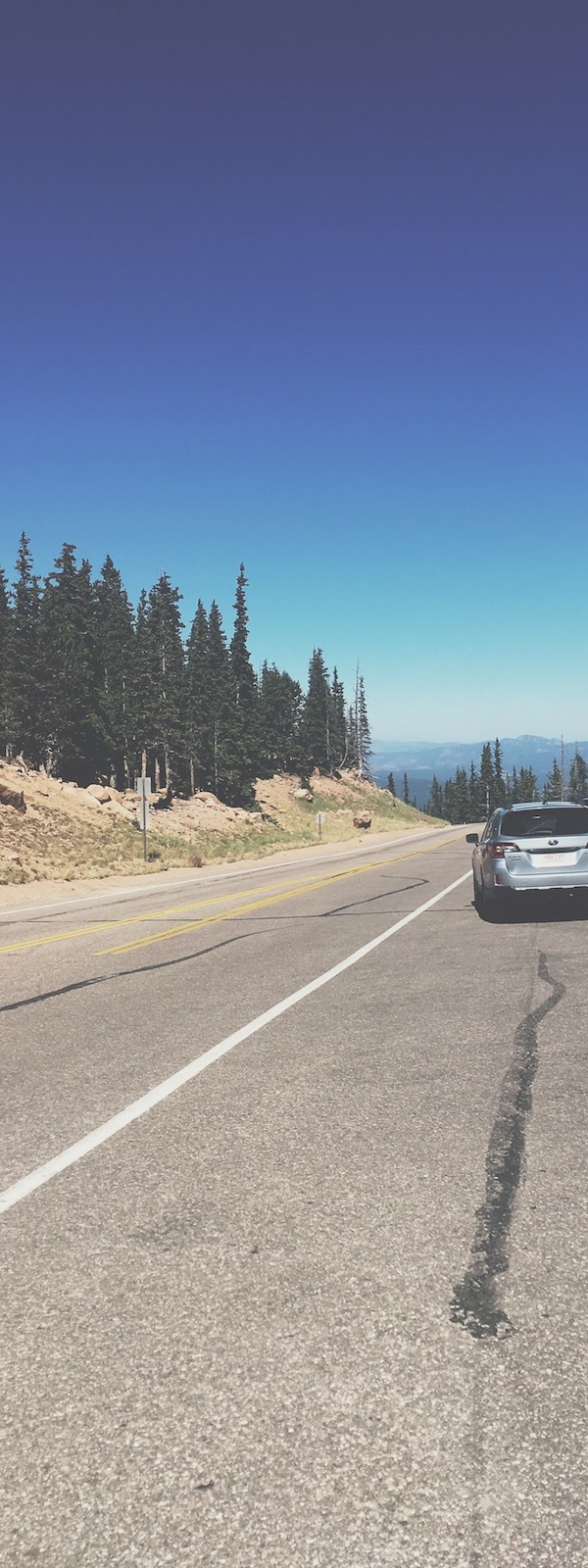
There is a personality type that has been absolutely driving me nuts recently. Every single time I overhear peers talking about their incessant itch to “travel and see the world” before starting a “real job” or “considering grad school” I want to punch a wall.
The truth is that my generation has been completely brainwashed by bullshit #millennial propaganda. Cute little listicles featuring chic pictures of young sexy people standing on the edge of waterfalls, that tell our generation that life is only worth living if we “travel.” Instagram travelers who ~perfectly~ filter every single picture they’ve taken while exploring Europe on daddy’s dime.
Do you want to know what I believe, honestly? The only people who want to travel incessantly are people who have, or want, completely mediocre lives.
You don’t make an impact by being a “traveler.” You don’t actually do anything at all. You just see. You just enjoy. You just leech off of people who are actually living lives worth living and doing jobs worth doing.
Nothing great in this world is accomplished through travel for the sake of #travel. Did Albert Einstein wake up one day and think, “Wow I just need to do some sightseeing, and then maybe sometime later in my life I’ll do something that’s actually significant!”
Did John D. Rockefeller — one of our country’s greatest businessmen — spend time taking cute pictures of buildings in faraway places? No, he worked. He created. He built something. He actually did something meaningful. The minute he became an adult, he was working his way up!
Being obsessed with travel is just a quiet concession that you don’t have anything worth doing or creating. You don’t create while on the move, you create when you stay in one place and focus on accomplishing your goals. Being obsessed with travel means you don’t actually have any goals, you just want to YOLO your way through an insignificant life.
“You’re only young once,” and “Enjoy your youth” are phrases that people have appropriated to justify months, and years of idle labor and laziness. I agree, you are only young once, and we should ALL be spending our youth provisioning for our future selves.
Being obsessed with travel means you are afraid to try anything — so you run. You run away from a stable income, from a prosperous future, from the difference you could actually make in the world. You run to faraway countries where you can take menial jobs — that you would be embarrassed to take back home — to net just enough money to sustain your “growth” that doesn’t actually grow any part of you.
Granted, that’s not to say a periodic vacation from time-to-time is a bad thing! Taking a week or two a year to rejuvenate is scientifically proven to make you more productive and healthy. But this incessant need to “travel the world” for months and years post-college is not healthy, and everyone promoting it is sucking our generation into a giant pyramid scheme where nobody comes out ahead (except the chic travel bloggers I suppose…) Don’t forfeit your youth to the present, invest it in your future!
You are worth so much more than #travel. You are worth an imprint on this world, something that people will remember you for — and that absolutely won’t be travel.

For more travel writing, check out A Thousand New Beginnings by Kristin Addis here .
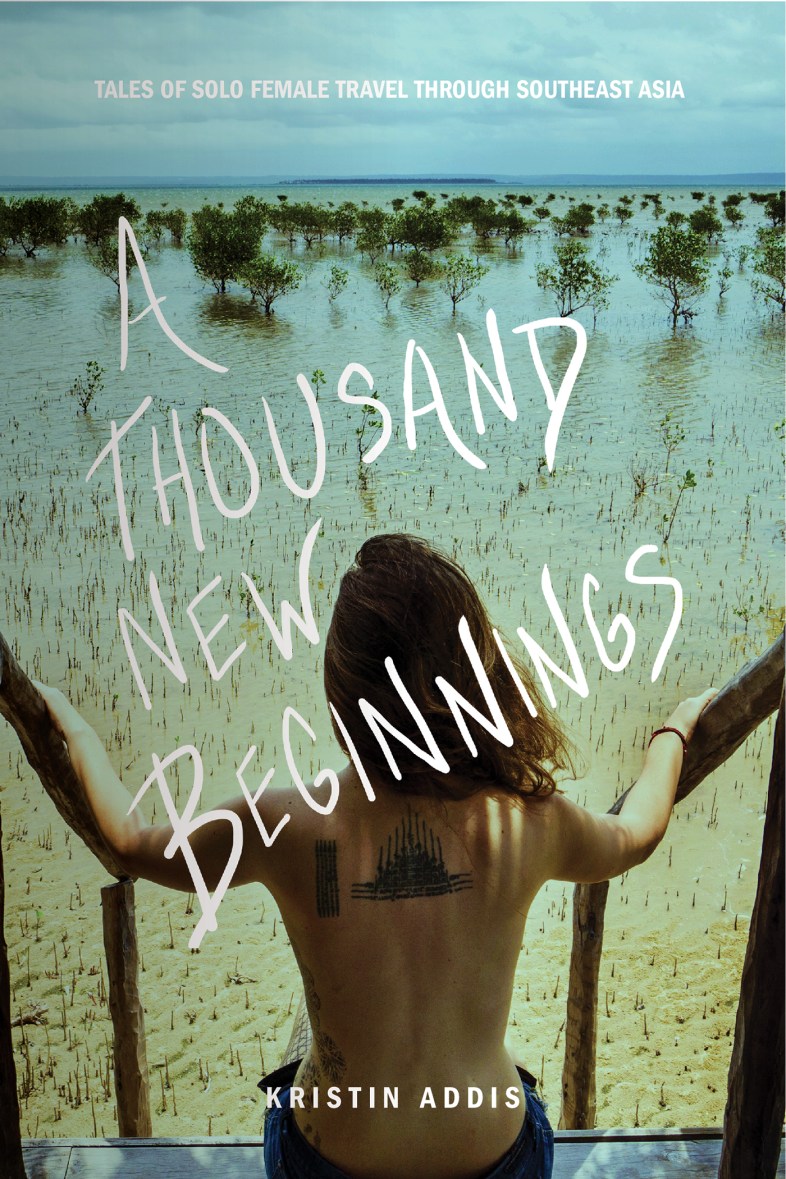
About the author

Jeffrey Grey
More From Thought Catalog
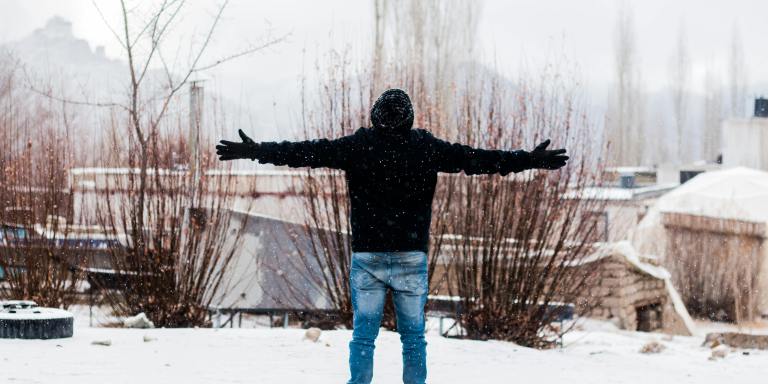
You Are More Than Your Addiction

5 Lessons Arya Stark from Game of Thrones Taught Us About Trauma (And Why She’s The Best TV Character of All Time)

5 Things People Don’t Realize You’re Doing Because You’re An Enneagram 8 Woman (A Dangerous Personality Type)

6 Life Lessons From ‘The Lion King’ That Still Roar 30 Years Later

4 Red Flags A Narcissist Is Gaslighting and “Emotionally Stalking” You (While Claiming You’re Obsessed With Them)

7 of the Best Female Rage Movies of All Time — That Will Help You Get Over Your Toxic Ex

How Travels Spurs Personal Growth
New research on peak experiences offers fresh insights..
Posted February 13, 2020 | Reviewed by Daniel Lyons M.A.
“To travel hopefully is a better thing than to arrive” asserted Robert Louis Stevenson, the famed late 19th-century British writer. In his short life of 44 years, he roamed far from his native Edinburgh—and saw much of the world, seeking both adventure and love. But as my new collaborative research with Ahrisue Choi and Kristin Bongcaras reveals, Stevenson’s cautionary aphorism is incorrect.
How so? In surveying peak experiences involving travel among over 200 people between the ages of 18 and 39, we found that nearly 82% reported that traveling had helped them in problem-solving or decision-making . Indeed, their elaborations showed a variety of psychological benefits surely unanticipated by the celebrated author of Treasure Island and Kidnapped .
To be fair toward Stevenson, he wasn’t alone in ignoring the importance of travel for personal growth and well-being. Virtually none of the founders of modern psychology analyzed this important connection or even noted it. You might think that Abraham Maslow had insights to offer, but perhaps because he traveled so little in his own life, the linkage eluded him. It wasn’t until the mid-1970s that this conceptual bond was forged, when Peter Adler argued that the culture shock experienced by “exchange students, international volunteers, military and diplomatic personnel, and others engaged in cross-cultural {endeavors} needn’t be entirely negative.” Rather, Adler insisted, culture shock could spur self-development and even self-actualization by exposure to new beliefs, values, and lifestyles.
Since Peter Adler’s pioneering formulation, research in this genre has focused mainly on tourism rather than work-related travel, probably due to the huge expansion of international tourism. For example, a study led by Chris Ryan of the University of Waikato in New Zealand found that touring backpackers had memorable experiences involving themes of difference, uniqueness, bonding with others, and a sense of achievement. More recently, Ondrej Mitas at Breda University in the Netherlands and his colleagues identified a variety of positive emotions in leisure travel, including contentment, interest, love, and joy.
How does travel/tourism specifically help with problem-solving and decision-making? Our study uncovered 7 distinct pay-offs:
- De-cluttered and better thinking . For example, one participant related, “When I travel, I can make my world as slow as possible for me to think” and another recounted that, “It cleared my mind. It gave me time to really think and weigh things out.”
- Greater calmness and peace of mind . To illustrate this, one participant reported, “It helped me ease my mind from stress ” and another stated that, “Travel helped me not to overthink problems, and to relax and have time for my family.”
- Increased hope and optimism . One participant commented, “To always be grateful for what I have” and another said that, “I helped regain my confidence when I was on the brink of giving up my job-hunting due to constant rejection.”
- A broader perspective on human life and culture . Another participant recounted, “It helped me as a marketing officer to learn more about the culture of other people and to relate to them more easily.” Similarly, another related that, “It made me realize how big the world is and how everybody else’s lives just go on, no matter what I was going through. It gave me a broader perspective.”
- Heightened self-discovery through solitary time . Another participant mused, “Being free of day-to-day hassles helped me to focus on self-reflection” and another poetically recalled, “It made me see the <value> of every failure I had in the past and to be more productive in my work.”
- Enhanced gratitude and appreciation . One participant reported, “It made me appreciate little things in life and value more time for people whom I want to be with.” Another noted that “Somehow, it helped me to wonder about all the beautiful things in life and appreciate it.”
- Self-empowerment —such as spurring greater courage, self-confidence , and autonomy. For instance, one participant commented that “It made me quit my routine job that was making me unhappy. It showed me that life is not only about making money; it’s about how you make the most out of the life that’s given to you.”
Can travel bring additional psychological benefits to people in their 20s and 30s? How about to those in midlife and beyond? To what extent are the growth gains outlined above influenced by our individual traits, interests, and goals ? Moreover, how does travel enhance our mindfulness , optimism, or sense of gratitude? Further research will tell us. But in the meantime, don’t hesitate to make your travel plans now.
Adler, P.S. (1975). The transitional experience: An alternative view of culture shock. Journal of Humanistic Psychology, 15 (4), 13-23.
Mitas, O., Yarnal, C., Adams, R., & Ram, N. (2012). Taking a "peak" at leisure travelers' positive emotions. Leisure Sciences, 34, 115-135.
Ryan, C., Trauer, B., Kave, J., & Sharma, A. & Sharma, S. (2003). Backpackers—What is the peak experience? Tourism Recreation Research, 28 , 93-98.

Edward Hoffman, Ph.D. , teaches psychology at Yeshiva University.
- Find a Therapist
- Find a Treatment Center
- Find a Psychiatrist
- Find a Support Group
- Find Online Therapy
- United States
- Brooklyn, NY
- Chicago, IL
- Houston, TX
- Los Angeles, CA
- New York, NY
- Portland, OR
- San Diego, CA
- San Francisco, CA
- Seattle, WA
- Washington, DC
- Asperger's
- Bipolar Disorder
- Chronic Pain
- Eating Disorders
- Passive Aggression
- Personality
- Goal Setting
- Positive Psychology
- Stopping Smoking
- Low Sexual Desire
- Relationships
- Child Development
- Self Tests NEW
- Therapy Center
- Diagnosis Dictionary
- Types of Therapy

At any moment, someone’s aggravating behavior or our own bad luck can set us off on an emotional spiral that could derail our entire day. Here’s how we can face triggers with less reactivity and get on with our lives.
- Emotional Intelligence
- Gaslighting
- Affective Forecasting
- Neuroscience
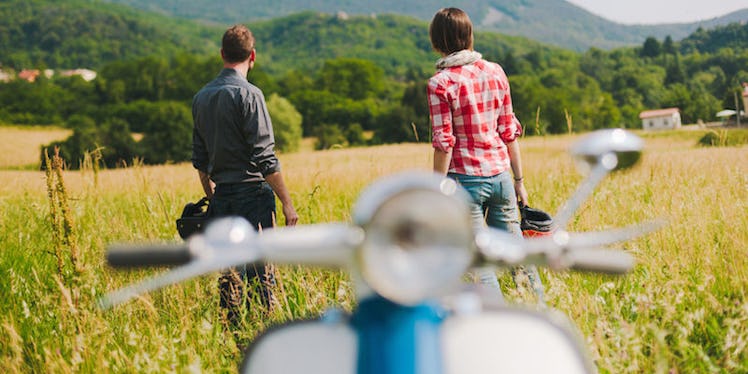
7 Ways Traveling Scientifically Changes Your Personality For The Better
Traveling is probably one of the only activities that most people can agree they love.
I mean, who doesn't want to discover unfamiliar territory while immersing themselves in a new culture?
Who wouldn't want to explore far-off places, places they wouldn't get to see under any other circumstances?
For those who love traveling, did you know long-term adventures can actually alter your personality?
Well, Dr. Julia Zimmermann and Researcher Franz Neyer set out to prove just that in a paper published in the Journal of Personality and Social Psychology .
The pair studied two groups of German college students -- one group traveling abroad in another country for one to two semesters while the control group stayed put.
The specific goals of this trial were to determine "how this period of extended travel influenced personality, as well as how the new social network people developed influenced any observed personality changes."
Prior to traveling, each and every participant was required to take a test that measured the "Big Five" personality aspects: openness to experience, agreeableness, extraversion, emotional stability and conscientiousness.
When these students came back from their travels, they had to take the same test again, and the results were compared.
Sound a bit confusing and wordy? Just a little. But don't get distracted.
The interesting sh*t is just about to come to light...
As you may have guessed, the students who went abroad scored higher in extraversion and high engagement when it came to social interactions, as opposed to those who stayed in their domestic locales.
Also, in comparison to those who did not travel, those who did scored higher in conscientiousness, openness to experience, emotional stability and agreeableness.
So how can traveling affect your personality?
You start to look at life from entirely different vantage points.
When you stay in one place for extended periods of time, you begin to take the simple things for granted.
When you travel, you realize the things you deal with every day, like brushing your teeth and taking the elevator to your apartment, are actually blessings.
The idea of being spontaneous no longer freaks you the F out.
Once your perspective on life has been changed, unanticipated changes don't derail you quite like they used to.
You realize life is just life and things happen, and the way in which you react is what determines your mood and your course.
Travelers don't let things dissuade them from whatever it is they're doing. Instead, they react accordingly and move along. Why? Because the journey is the destination, man.
You're completely removed (and freed) from your comfort zone.
The quickest way to get out of your comfort zone is to get the hell out of wherever you are and immerse yourself in a completely different culture.
Watching the way people interact with one another and the land surrounding them is an eye-opening experience that can only be done in person.
Stop living life through the lens. Get out there, and see it for yourself!
You're more open to meeting and making friends with new people.
When you are traveling, you can't help but meet new people.
It's beyond interesting to see the different way someone your age lives his or her life in comparison to yours.
Zimmerman and Neyer found "the more that these travelers engaged with new people from different countries, the more that promoted goals related to openness."
This also aids in gaining a new perspective on life, which leads to...
You learn that there's a huge difference between Facebook friends and real friends.
Let's get this out of the way, first and foremost -- Facebook likes do not count as a means of keeping in touch.
When you are traveling and meeting so many new people over the span of so many new places, it's basically impossible to keep up with whatever your friends are doing back home.
This isn't to say you care about them any less, just that your current situation is tailored to the new friends you are making.
Your creative juices are on overdrive.
You may think there is no way creativity and traveling have anything to do with one another, but you are sadly mistaken!
Each culture has within it a set of practices and manners. Learning to adjust your preconceptions is an indication of creativity.
Researchers William Maddux, Hajo Adam and Adam Galinsky published a paper in the Personality and Social Psychology Bulletin addressing this key issue.
The group concluded "learning that the same task (getting a snack) has different solutions is a hallmark of creativity.
Thus, living in another culture and learning the practices of that culture may enhance the psychological processes that make people more creative."
You don’t get tied up in the little things that used to break you down.
Instead of getting distracted and deterred by obstacles that appear in your path, you embrace them.
Since your perspective has been changed, you aren't as likely to simply throw in the towel.
Instead you're more reactive to change and willing to work out a course of action that will benefit you in the long run.
For more of her thoughts, humor and ridiculous opinions follow Ashley Fern on Instagram and Twitter .
The Psychology of Why You Feel Empty Traveling (and How to Change It)
[email protected]
10 Min Read
Have you ever been on a long travel vacation having the time of your life and in the flick of a switch feel home-sick and ready to leave? It turns out, you’re not alone.
Whether we are traveling alone sipping a latte in Paris, France or with some friends on the beach touching our toes to the turquoise waters of Thailand, we have all felt this unexplained and slow moving feeling of crumminess.
What makes it so strange is that we’re happy and having fun but… something is just off. After traveling abroad and speaking to hundreds of others who have experienced these exact feelings, I’ve come to call this phenomenon “the mid-trip crisis.”
Why do we feel “the mid-trip crisis?”
A mid-trip crisis arises because the fundamental design of travel does not support a sense of belonging or a sense of purpose, which studies have shown are the two most impactful factors when measuring a meaningful life.
In the book, The Power of Meaning by University of Pennsylvania Professor Emily Smith, evidence is shown that people who rate their lives with the most satisfaction are people with intense feelings of belonging and purpose: two things that are fundamentally missing in 95% of travel excursions.
Why Does Traveling Lack Belonging and Purpose?
As Smith describes belonging she says; “we need to feel understood, recognized and affirmed, ” and really, we just need to feel heard, by someone.
It’s no secret that traveling can be isolating.
A stereotypical getaway lasts one or two weeks and is jam packed with activities even up until the last hour. Not only does our vacation turn from relaxing to stressful but the transient nature of our vacation gives us no sense of belonging.
We stay in new places and make friendships that last for no more than a dinner or a day until we off to our next, pre-planned activity. Traveling like this guarantees our vacation to be full of surface level relationships, which subconsciously starts to eat at us.
Worse off, we likely can’t keep in touch with anyone back home be it timezone or data troubles. So there we are. Living the life on our travels until day five our brain is like, “Hey bud I want to talk to someone.”
Why hostels don’t fulfill our desire for belonging
The absence of belonging within travel isn’t anything new. This is why hostels exist, this why group travel programs exist, this is why people travel with friends. These alternatives help a lot. But, there are still fundamental flaws to all of these approaches that leave us wanting something else.
Smith’s findings cite that the greatest driver of belonging for humans is when we experience ‘close relationships. ’ Supported by world-class psychologist Roy Baumeister, Smith explains that close relationships are fulfilled through consistent and non-negative interactions.
This is where hostels just do not deliver.
In a hostel, nine out of ten people we meet will be gone in five days giving no hope for consistent intimacy. While hostels are a great place to have some connection, our mind desires consistency and something deeper.
Travel programs are one of the best alternatives but not ideal for many people. Traveling in a group will help fulfill our sense of belonging through close relationships, it makes traveling extremely limited. The fundamental flaw with traveling in groups is it generally contradicts one of the greatest desires of the modern day traveler: to wander.
The definition of wander is “to walk or move in a casual or aimless way.” There is nothing about having your itinerary pre-planned for the next four weeks that fulfills a person’s desire to “wander.”
This is also why traveling with a significant other is called the marriage test … because it’s really freakin’ hard when you both want to aimlessly wander, but in different directions.
In travel, we want the freedom to wander alone, but we also need to experience close relationships to make it past day five.
What do we do?
Let’s first investigate the lack of purpose in traveling, then we’ll tackle solutions for both.
Lacking a sense of purpose while traveling won’t be a surprise to many people, either. While the loss of belonging may be mitigated by sacrificing freedom to travel in a group or staying in a hostel, finding a sense of purpose is much more difficult.
Americans know travel lacks a sense of purpose. This is why we have a travel deficiency . A week in the islands without time spent on our career? Sounds terrifying and purposeless, so we don’t do it.
The problem begins because traveling, at its core, is just an extended weekend. Yes, even if you’re ‘growing your mind’ in southeast Asia. While travel is more socially accepted, it’s basically the same as watching television.
When broken down, travel is just a long period without any sort of work and lots of time spent as the most egregious of consumers. At the end of the day, we are in a tensionless state where all of our time and effort is spent being selfish.
I don’t say selfish in a bad way. But travel and consumption are usually about our fun, our needs, and our wants. And deep down we crave impact and service.
As Smith describes, when others count on us, we feel purposeful. Smith cites research that shows when people begin engaging in lifestyles where no one is counting on us, be it family, co-workers or strangers, our quality of life starts to drop.
And this is exactly what happens when we travel. We consume and slowly, just as with belonging, our subconscious mind starts to say, “Hey, dude, I am over these temples here in Asia.”
Belonging & Purpose together
As discussed earlier, studies show belonging and purpose are the most influential factors when measuring quality of life. And ironically, when we go on vacation in pursuit of living a life of high quality, we lose those things.
It takes a few days or whole week but our mind picks up on the absence of these things and that’s when the mid-trip crisis will hit and suddenly you start thinking, “okay… I am ready to go home.”
How Do We Solve the Mid-Trip Crisis?
First off, I am not hating on travel. Traveling, or just taking vacation days is well-documented to be beneficial and pretty necessary to a healthy life .
But here’s the thing. The type of travel I just described above is incredibly lopsided and it is massively weighted towards self-indulgence and consumption. Which is also fine.
One of the studies Smith cites in her work actually shows that self-indulgence is critical to enjoying a life of the highest quality. However, they also found people who invest strictly into self-indulgence rated themselves as really happy… for about five days, then their quality of life dropped to the lowest of anyone in the study.
Consider this when we think about “the mid-trip crisis.” When we travel and 90% of our energy is spent self-indulging, life is great, but then after a week or so we start to feel really crappy.
So what’s missing?
In this cited study, the people who ended up having the highest quality of life were those who had both self-indulgence and some sort of purpose in their day.
If you’ve ever heard the term “work hard, play hard,” you now have evidence to support your claim.
Applying this to traveling means: have a ton of fun and do something you care about.
Let’s see what that actually looks like in practice. Below, we have put together a few sample ideas on how you can weave both purpose and belonging into your trip.
Solutions to “the Mid-Trip Crisis”
To solve the issue of the mid-trip crisis and to ensure your travels are infinitely awesome, a few things need to happen.
First, make sure your trip allows for consistent time for building relationships (belonging). Second, make sure you schedule time for one or two activities that feel purposeful and third, have lots of fun.
As long as you deliver on these three things, you will have an unbeatable travel experience every time, whether it is two weeks or six months.
Having lots of fun while traveling isn’t hard, so I won’t really cover that. Let’s focus on belonging and purpose.
Below, I have accumulated some solutions to both purpose and belonging. Mix and match some of the ideas. Some of them can work together. Each solution delivers on purpose or belonging in a different way, it is your choice on how you want to approach this.
The Solutions:
When traveling in a group, have a defined experience planned:
Traveling in a group helps create a sense of belonging with consistent interaction. However, we lose our sense of freedom. It is shown that a lot of happiness and life satisfaction is based on our expectation of experiences. If you are traveling in a group, book a defined and controlled experience like a safari. This clearly places the expectation for traveling wandering isn’t going to happen.
Do your normal morning routine:
Having our normal morning run, breakfast or reading gives us a sense of normalcy that enables a sense of productivity and purpose for the entire day.
Work remote:
Working remote is a good way to support purpose and maybe belonging. A remote job is going to have limited interaction with coworkers, being in a new country and talking TPS Sheets with Sharon from accounting isn’t going to drive a sense of belonging. However, if you work for a company who lets you work remote for an infinite runway, this can help as you immerse into your travel locations and make friends with locals.
Volunteering is a special type of travel. It can be done on a long-term basis or short-term basis. Volunteering is going to be done in a group so a sense of belonging will arise. Putting in the elbow-grease towards a cause will also support a sense of purpose. And your volunteering doesn’t have to be something altruistic. Volunteer at a winery, restaurant or bar. Putting in hours on anything will help.
Travel for five days only:
Traveling for a shorter amount of time doesn’t really solve a sense of belonging or purpose, but completely avoids needing one. 5-day travel allows you to self-indulge like crazy and come back home before your body realizes it was missing either of the two.
Travel for six months in 2-3 locations:
Conversely to the above solution, by traveling for long periods of time, we are able to fulfill both belonging and purpose. Traveling long-periods of time helps us feel a sense of belonging as we are able to make friends with locals. Delivering on purpose here is very doable as you will have to adopt some sort of a normal life. Having a routine, picking up a side job, volunteering or working remote will help you feel productive, impactful and purposeful.
The mid-trip crisis won’t apply to everyone. But for a lot of us, it’s a thing and hopefully today these writings are able to supply you with an understanding of why, giving you the power to create travel that fits your needs.
The solutions above are samples and suggestions, there are probably infinite ways to create the travel you want and the travel you need.
Get creative. We’d love to hear what you came up with.
What’s Your Travel Personality? What’s Your Travel Style?
Travel PERSONALITY | Travel STYLE
If you’re considering an extended multi-destination or around-the-world journey chances are you’ve got a pretty advanced sense of curiosity about the world and a strong personality to boot. The first part of deciding where you want to go on your trip is to determine your traveling “personality,” that is, how you identify yourself as a traveler, the passion behind your planning, your modus operandi if you will. To help you identify yourself (and likely travel companions ), we’ve pinpointed a few basic travel personalities – one or a few are likely to fit your profile. You can use them to establish an overarching theme for your trip, or to divide up the world into those places that have a place on your RTW route and those that you probably don’t care to include.
Travel Personalities
Adventurous travelers.
If you imagine yourself bungee jumping in New Zealand, running with the bulls in Pamplona, dancing until 6 in the morning in Berlin, heliskiing from the top of a mountain in Banff or boating down the Amazon, all signs point to you being an adventure traveler. National Geographic has a list of the top adventure tour operators and outfitters worldwide that may be worth a look. Of course, you don’t need to be a part of a tour to have an adventure, but if you’re not sure what adventure travel means or if you just want an idea of what kind of companies operate tours and which ones to use, it’s a great place to start. Recommended destinations for adventure travelers : New Zealand, Brazil, Bolivia, Nepal/Tibet, Tanzania, India.
ROMANTIC TRAVELERS
If your travel dreams are populated by the perfect sunset on a secluded beach in the Seychelles, gondola rides in Venice, and a honeymoon for the storybooks, this is probably you. Travel can be an amazing way to connect with your partner, or even meet someone new! Check out Travel and Leisure’s list of the 50 most romantic places for a general idea of what’s out there in the way of romantic destinations. The notion of taking off to far-flung places is a romantic idea in itself, so grab your partner, your passports, and get out and see the world. Recommended spots for romantic travelers : Santorini, Venice, Paris, Buenos Aires, Goa, Bali, Phuket, Fiji, Tahiti.
INTELLECTUAL TRAVELERS
If travel is just another way you broaden your internal encyclopedia with art, culture, and history, and your dream itinerary includes days filled with museums, archeological sites, groundbreaking architecture and traditional experiences, you may be an intellectual traveler. Lucky for you, destinations all over the world cater to the student inside of all of us. The world’s full of lessons, and travel is the way to learn them. Recommended regions for intellectual travelers : Europe, India, Japan, Machu Picchu, Istanbul, Cairo.
FIRST-TIME TRAVELERS
Will this be your first time traveling internationally? A little nervous about flying overseas? Concerned that you don’t know what you don’t know? Those are all normal concerns for first-timers. Don’t worry. There are lots of places that’ll present much less of a cultural shock where you can ease yourself into the world at large. You’ll be a pro before you know it. Recommended stops for first-time travelers : London, Paris, Rome, Costa Rica, Australia, New Zealand.
DANGER JUNKIES
If you prefer to live on the edge and explore destinations widely considered off-the-beaten-path or even unsafe, you’re probably a danger junkie at heart. Your ideal trip includes Ghana, possible brushes with the FARC in Colombia, or meeting some Maoist rebels in Nepal. Robert Pelton is your personal idol. You’re a risk taker and enjoy finding destinations that give you the thrills you desire. Of course, we caution our travelers to read US State department warnings, as well as the warnings posted by other nations (that said, many warnings can be colored by political agendas). Recommended locales for danger junkies : Tibet, Colombia, Uganda, Papua New Guinea
ALL, A COMBINATION, OR NONE OF THE ABOVE
Most people want to include elements of every different type of travel in their around the world experience, and we certainly encourage you to do so, too. The best way to prepare for an extended journey is to be completely honest with yourself about what you want to accomplish with your RTW trip and how you want to experience the world. The truth is that most travelers don’t fit neatly into one travel personality type. Still, it’s important to think about what kind of activities and attractions appeal to your personality, not just what cities you want to visit or on what airlines you’ll be flying. Another way to narrow down the endless possibilities while making complex travel plans is to identify how you like to travel, i.e., your travel style.
5 Travel Styles .
Traveling off the beaten path.
You’re not the average tourist. You want to add more layers to your travel experience and have rich cultural experiences every step of the way. You try things that more tentative travelers might skip. Popular tourists spots are crowded for obvious reasons—history, beauty, craftsmanship—but some of the most rewarding traveling experiences happen away from such places. Some of them are as simple as a cup of tea with a local shopkeeper in Turkey, or a conversation with local university students about politics in a bar in Colombia. Sometimes the proposition of striking out on your own in a place where you don’t speak the language is daunting, but it’s all part of the travel experience, and courage, not fear, reaps the greatest rewards in new places. Suggestions on how to get off the beaten path:
- Go somewhere that’s not in your top 10 places to see.
- Visit a village as opposed to a city.
- Skip your first choice of continents.
- Make a point of interacting with locals.
While it’s not easy, you can get away from the camera-toting masses, perhaps right in the middle of the most visited city of all. Check with your personal travel consultant for help discovering that proverbial and elusive “hidden gem”.
Traveling In Style
You need a little comfort on the road, and you’re willing to stretch your budget a little to get it. There’s no shame in wanting fancy sheets and a warm pool every once in a while. If you’re going to be traveling RTW for several months, you may not want to always (or ever) go the cheapest route. A hot shower with good water pressure and a comfortable bed are a miracle after a few months, weeks or even days of traveling. Many of our clients like to book a few splurges into their trip, even if they’re trying to keep their costs down as much as possible. If you’re looking to keep your budget on track , you might consider doing this in parts of the world where a splurge isn’t that expensive. For example, maybe during your travels through Europe, you’d stay in budget hotels and hostels, but the night you arrive in Jaipur you might hire a car to pick you up at the airport and drive you to a 5-star hotel built into an old palace. Here are a few other ways where you might spend a bit more money to have better experiences:
- Trek the mountains in Nepal with a guide
- Go on safari in East Africa
- Cruise to Antarctica from Ushuaia
- Tour the Silk Road
You might also consider upgrading your long flights: a fully reclining seat for that 10 or 20-hour flight might just be worth the investment. AirTreks can accommodate first and business class upgrades for all or part of your trip, often for a discount.
Traveling with an Agenda
You have things to do, places to be, going from place to place with an angle, an agenda on your trip. People who are working weddings, studies, volunteering, practices or business into their RTW trip fit into this travel style. For some people, traveling isn’t about aimlessly wandering the world, bouncing from tourist site to tourist site — they hit the road on a mission with a strong sense of purpose and responsibility to themselves (and others) to motivate them and help them pull it off. Of course, as an individual, this can mean any number of things — maybe your life’s dream is to climb K2 or to take a perfect honeymoon at a resort in the Maldives and fit in a visit to Venice’s Grand Canal and the Eiffel Tower in Paris Or, maybe you have a meeting in Shanghai on Monday and a meeting in Bangalore on Thursday and need to be in San Francisco, then Toronto, then back to New York after that. Perhaps you’re on a wedding tour, paying respect to friends in Phuket and family in Rome, or maybe you just got accepted to study at an ashram in India. Perhaps you’re on a wedding tour, paying respect to friends in Phuket and family in Rome, or maybe you just got accepted to study at an ashram in India. Whatever your “must do” may be, it can form the linchpin of your trip and serve as something to build the rest of your RTW trip around.
Traveling to Get Immersed
Getting in touch with a place takes a little time. You’re the type of traveler that likes to move slowly, to connect with locals in ways you just can’t on a whirlwind trip. The Peace Corps is just one way to immerse yourself in cultures around the world, long-term, slow travel is another way to stay in a place over a long period of time to experience what daily life is like. A great way to stop, recharge the batteries and get in touch with a local way of life is to rent an apartment in the city of your choice. It slows you down and allows you to connect with a city from a local’s perspective, as opposed to seeing as much as you can every day to check things off your list as a tourist. You could even get a job, do the “metro, work, bed” routine for awhile. Teaching English is a popular and easy option in many destinations if you’re a native speaker.
Responsible Travel
You make a point of dedicating your travels to the greater good. As countries around the world develop faster and faster, and as the global community starts to see its impact on the environment, more and more travelers feel that integrating some aspect of responsible travel is essential on every trip. Lonely Planet defines responsible travel as:
“Minimizing your impact and maximizing your connection with people and the environment. It’s about making a positive contribution and having the most rewarding and inspiring travel experiences of your life.”
Our ground partner Global Basecamps offers sustainable tours, treks, and accommodations all over the world. Many volunteer organizations also have conservation projects you can participate in on your travels such as tagging sea turtles, beach cleanups, and cultural preservation efforts. You can also volunteer with organizations like Global Vision International or Volunteer Abroad .
If you want to immerse yourself in local culture on a smaller scale, there are lots of ways to do it. Edward Hasbrouck recommends visiting a local English school and volunteering to be a conversation practice partner for the day.
Independent travelers can play a vital role in fostering a universal attitude of respect by helping support local communities cultures in the hard work of maintaining their cultures and environments.
Build Your Trip

National Geographic content straight to your inbox—sign up for our popular newsletters here

Travelers may find it difficult to empathize with locals, according to experts. Here, tourists in 2016 buy fruit juice at a market stall in Siem Reap, Cambodia.
Travel is said to increase cultural understanding. Does it?
While researchers say travel does affect the brain’s neural pathways, true empathy remains an elusive destination.
Empathy is commonly defined as “putting yourself in another person’s shoes” or “feeling the emotional states of others.” It’s a critical social tool that creates social bridges by promoting shared experiences and producing compassionate behavior. But can empathy be learned? And can travel help facilitate this learning? The answer is complicated. “Research has shown that empathy is not simply inborn, but can actually be taught,” writes psychotherapist F. Diane Barth in Psychology Today . While past research has indicated that empathy is an unteachable trait, newer research—including a 2017 Harvard study —suggests that the “neurobiologically based competency” of empathy is mutable and can be taught under the right circumstances. Whether seeing the world actually opens travelers’ minds—that it makes travelers more empathetic—is up for debate. In a 2018 Harris Poll of 1,300 business travelers, 87 percent said that business trips helped them to be more empathetic to others, reports Quartz . And in a 2010 study , Columbia Business School professor Adam Galinsky found that travel “increases awareness of underlying connections and associations” with other cultures. While self-defined empathy and awareness are unreliable measurements, it stands to reason that cross-cultural exposure through travel would at least create conditions for checking conscious and unconscious biases. “If we are to move in the direction of a more empathic society and a more compassionate world, it is clear that working to enhance our native capacities to empathize is critical to strengthening individual, community, national, and international bonds,” writes Helen Riess, associate professor of psychiatry at Harvard Medical School and author of the 2017 report.
But the coronavirus pandemic and, more recently, the global Black Lives Matter protests have forced an uncomfortable reckoning—that all the travel in the world might not be enough to engender the deep cross-cultural awareness people need now.
“There’s this false adage that travel opens minds, but that’s not [a built-in] fact about what travel does,” says Travis Levius, a Black travel journalist and hospitality consultant based in London and Atlanta. “Travel does not automatically make you a better person,” nor does it clue you into “what’s going on in terms of race relations.”
Black Travel Alliance founder Martina Jones-Johnson agrees, noting that tourism boards have made it “overwhelmingly clear that travel doesn’t necessarily build empathy.”
The lack of diversity within the travel industry itself suggests that there’s much work to be done to make the industry as inclusive as the world of travel consumers. According to a 2019 annual report by the U.S. Commerce Department’s Bureau of Labor Statistics, workers in the leisure and hospitality industry were overwhelmingly white. Consumers, meanwhile, say they want to spend their money on travel companies whose employees reflect the world they work in, according to the World Travel and Tourism Council .
Additionally, companies that embrace inclusivity may have a better chance of avoiding tone-deaf messages , such as using “free at last”—the line is from Martin Luther King Jr.’s “Dream” speech—to caption a billboard depicting white children jumping into the Florida Keys. The advertisement, which has since been taken down, launched in the wake of the killing of George Floyd by police officers in Minneapolis that sparked worldwide protests against police brutality.
(Related: Learn why it’s important to have diverse perspectives in travel.)

Karfa Diallo leads a tour of sites related to the trans-Atlantic slave trade in Bordeaux, France, in June 2020. Participating in activities that amplify marginalized voices and experiences can go a long way toward developing empathy, say experts.
A road paved with good intentions
Interestingly, modern tourism has fairly empathic origins. In the 1850s, Thomas Cook used new railway systems to develop short-haul leisure travel as respites for hard-working British laborers, according to Freya Higgins-Desbiolles, a senior lecturer on tourism management at the University of South Australia.
A hundred years later the United Nations declared reasonable working hours, paid holidays, and “rest and leisure” as human rights . By the 1960s, spurred by related movements to increase holiday time, the leisure sector had coalesced into a full-fledged professional industry.
Since then, the World Tourism Organization and international aid groups have championed tourism as both “a vital force for world peace [that] can provide the moral and intellectual basis for international understanding and interdependence,” as well as an economic development strategy for poorer nations.
But not everyone agrees that the travel industry has lived up to these lofty goals. In recent decades, it has been accused of doing just the opposite. As Stephen Wearing wrote nearly 20 years ago : “tourism perpetuates inequality” because multinational corporations from capitalist countries hold all the economic and resource power over developing nations.
(Related: This is how national parks are fighting racism.)
These days, inequality is baked into the very process of traveling, says veteran Time magazine foreign correspondent and Roads & Kingdoms co-founder Nathan Thornburgh. “Your frequent flier status, the stupid little cordon separating the boarding lines, the way you take an Uber or cab from the airport after you land, not a bus or colectivo or matatu —those all reinforce divisions, not empathy,” he writes in an email. “And that’s just getting to a place.”
Empathy’s downsides
Experts say developing empathy isn’t easy and comes with a host of problems. Joseph M. Cheer, a professor at Wakayama University’s Center for Tourism Research in Japan, notes that empathy inherently “others” another person.
In his 2019 study of westerners on a bike tour in Cambodia, Cheer found that despite the prosocial aspects of the experience—visiting local non-governmental organizations, interacting with local Cambodians—post-tour interviews revealed that the tourists didn’t understand the cultural context of the outing. The visitors leaned into problematic tropes like “happy,” “lovely,” and “generous” when describing locals or simply saw Cambodians as service providers.
This “othering” bias, Cheer says, becomes more noticeable the greater the distance between tourists and locals, and especially so in strictly transactional encounters, such as in hotels.

A worker at a resort in Bali. Researchers say visitors should make a commitment to understand local cultures by moving past transactional interactions.
Our individual travel experiences oppose our best intentions, says travel writer Bani Amor, who has written extensively on race, place, and power.
“The stated [positive] intentions are completely contradictive to what happens in the tourism industry and how oppressive it is to BIPOC [Black, indigenous, and people of color] around the world, how tourism laborers are being treated, and how they’re being dispossessed, not having a right to their own land and to enjoy our own places,” says Amor, who has worked in the tourism industry in their ancestral home of Ecuador.
“You can only really know your own experience,” adds Anu Taranath, a racial equity professor at the University of Washington Seattle and a second-generation immigrant.
“I think we can develop empathetic feelings and sort of crack open our sense of self to include other people’s experiences in it. We can only deepen our own understanding of who we are in an unequal world and how that makes us feel and how that motivates us to shift our life in some way or another.”
I think in its purest form, empathy is basically impossible. I can weep for you, but I can’t weep as you. Nathan Thornburgh , founder, Roads & Kingdoms
Or as Thornburgh puts it: “I think in its purest form, empathy is basically impossible. I can weep for you, but I can’t weep as you.”
Traveling deeper
While experts conclude that travel may not inspire enough empathy to turn tourists into social justice activists, the alternative—not traveling at all—may actually be worse.
“[B]ecause travel produces encounters between strangers, it is likely to prompt empathetic-type imaginings, which simply wouldn’t be there without the proximity created by travel,” says Hazel Tucker in a 2016 study published in the Annals of Tourism. It’s also one reason why it’s important to expose children to travel at an early age.
Yet truly transformational experiences require more than just showing up with a suitcase. It requires energy, effort, and commitment on the part of tourists, as well as specific conditions, says Higgins-Desbiolles. “Visitors need to be prepped for the interaction so that they are ready to engage with the people on an equal level,” she notes.
Taranath’s book Beyond Guilt Trips: Mindful Travel in an Unequal World may provide some starting points. “It’s an invitation to think more carefully about our good intentions and where they really need to be challenged,” Taranath explains. “How do you think about identity and difference in an unequal world? What does it actually look like?”
Additionally, Tucker suggests embracing what she calls “unsettled empathy”: learning about the cultures you’re planning to visit and sitting with uncomfortable legacies of colonialism, slavery, genocide, and displacement from which no destinations are exempt.

Barbara Manigault, a Gullah sweet grass basket weaver, practices her craft in Mount Pleasant, South Carolina. American tourists with limited travel opportunities can find many places in the U.S. to learn more about other cultures.
That background can be the basis for meaningful conversations, which Cheer found are “the key element that prompted empathy.” Thornburgh adds that travelers should seek out places where there is “an equal and humanistic exchange, or something approaching it, between the visitors and the visited.”
(Related: The E.U. has banned American travelers. So where can they go? )
Toward that end, experts generally ruled out cruises. Instead, immersive experiences like Black Heritage Tours that amplify historically marginalized voices provide better opportunities for meaningful connections.
Fortunately for would-be travelers, those opportunities can be found even in these pandemic times, when many countries are restricting international travel, especially for Americans.
“We are so lucky in this country that the whole world has come here to build their lives, in big cities and small, and that we have Black and [Native American] communities throughout,” says Thornburgh. “Go to their restaurants, lend your talents to their schools, help them raise money for their playgrounds.
“You want travel? You want to experience different cultures? Start at home. Start now.”
Related Topics
- CULTURAL TOURISM
- PEOPLE AND CULTURE
You May Also Like

How to make travel more accessible to the blind

The Masterclasses 2023: 10 travel writing tips from our experts
Fuel their curiosity with your gift.

Before the Great Migration, there was the Great Exodus. Here's what happened.

Americans have hated tipping almost as long as they’ve practiced it

Who were the original 49ers? The true story of the California Gold Rush

10 of the best hotels in Tokyo, from charming ryokans to Japanese onsen retreats

How to spend a day exploring Berlin's art and design scene
- Environment
- History & Culture
History & Culture
- Gory Details
- Mind, Body, Wonder
- Adventures Everywhere
- Terms of Use
- Privacy Policy
- Your US State Privacy Rights
- Children's Online Privacy Policy
- Interest-Based Ads
- About Nielsen Measurement
- Do Not Sell or Share My Personal Information
- Nat Geo Home
- Attend a Live Event
- Book a Trip
- Inspire Your Kids
- Shop Nat Geo
- Visit the D.C. Museum
- Learn About Our Impact
- Support Our Mission
- Advertise With Us
- Customer Service
- Renew Subscription
- Manage Your Subscription
- Work at Nat Geo
- Sign Up for Our Newsletters
- Contribute to Protect the Planet
Copyright © 1996-2015 National Geographic Society Copyright © 2015-2024 National Geographic Partners, LLC. All rights reserved

Traveling Mindset: How Traveling Affects Life and Personality
The importance of a traveling mindset (how traveling the world affects life and personality).
Have you ever stopped to wonder about the importance of traveling and how this affects your life and personality? If you want to travel the world, you’re going to need an adventurous personality, a positive attitude, and a traveling mindset.
Naturally, everyone has their traveling preferences although these change over time or due to circumstances. Partying on a sun-soaked island is fun for a while, a fun-packed themed family holiday is great for those with kids, and that dream cruise or luxury all-inclusive break may well top your bucket list.
You might want to see World Heritage Sites, while others yearn for the excitement of a wildlife safari, a Himalayan trek, or a road-tripping adventure across Australia.
Whether you have an adventurous mindset or prefer to vacation in a calm and relaxed way, traveling affects your life in a positive way to make you happier.
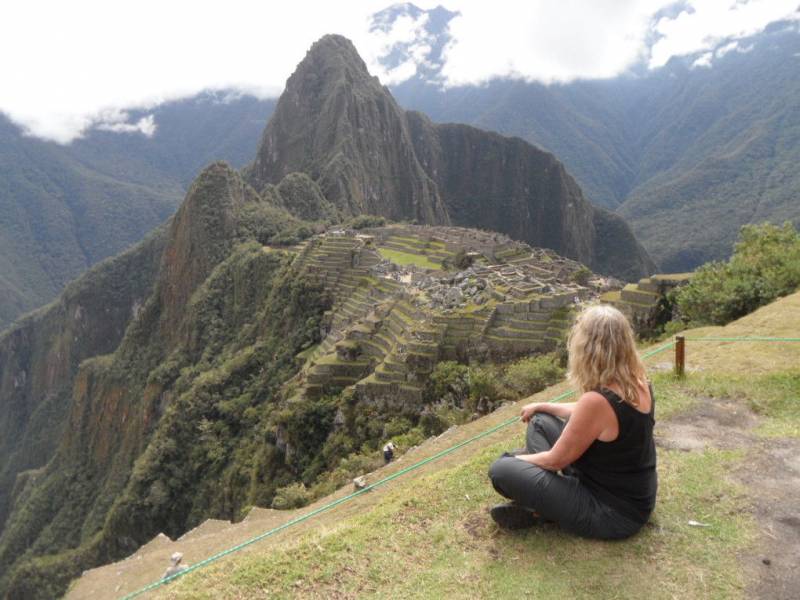
How A Traveling Mindset Makes You Happier
Personally, a traveler’s mindset has brought me happiness and changed my life – on that first trip abroad as a solo woman traveler , I met my husband by pure chance shortly after arriving on the Costa Blanca in Spain , and have lived here ever since. Note, the intention was to travel the world independently and a Spanish boyfriend was definitely not part of the plan! But traveling changes your values and this can lead to a new way of life.
Why happiness is a journey
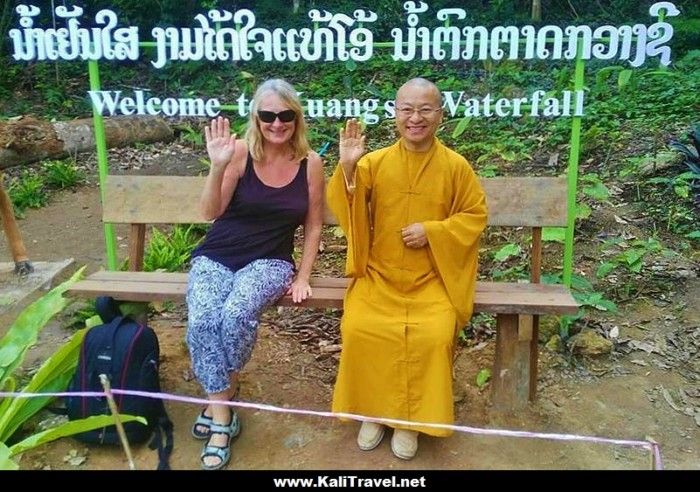
This phrase comes to mind “Why happiness is a journey not a destination” and it’s true. Chat and listen to the folk you meet on your journeys, and be genuinely interested in their way of life. I’ve met so many kind and helpful people on my travels across the world, in every continent and nation.
The magical moments are many, and the best travel memories not only include your first sight of Venice or the Taj Mahal , or somewhere equally amazing. I remember the call of eagles at sunrise over Munroe Island , or sitting on the wall of a posh hotel with dozens of villagers to watch a beautiful Indian wedding, or joining a photo shoot in Luang Prabang with this Lao monk!
Related Posts: Journeys that will change your traveling mindset * Annapurna Trek to Poon Hill (Himalaya Mountains, Nepal) * 2 Day Slow Boat down the Mekong River (Laos) * Adventure from Cuzco to Machu Picchu (Peru)
Want to know how traveling changes your mindset ? Juliet is a happiness coach who shares her professional insight with us in this exclusive article.
A Traveling Mindset
Authored by Juliet Dreamhunter
Why did the traveler refuse to fly economy class? Because he had a first-class mindset!
Traveling is more than just visiting new places, it’s a journey that transforms your mindset and broadens your perspective. By immersing yourself in different cultures and discovering new territories, you can challenge your beliefs, break free from your comfort zone, and see the world through a fresh lens. In this post, we’ll look at six interesting ways a traveling mindset can make you happier.
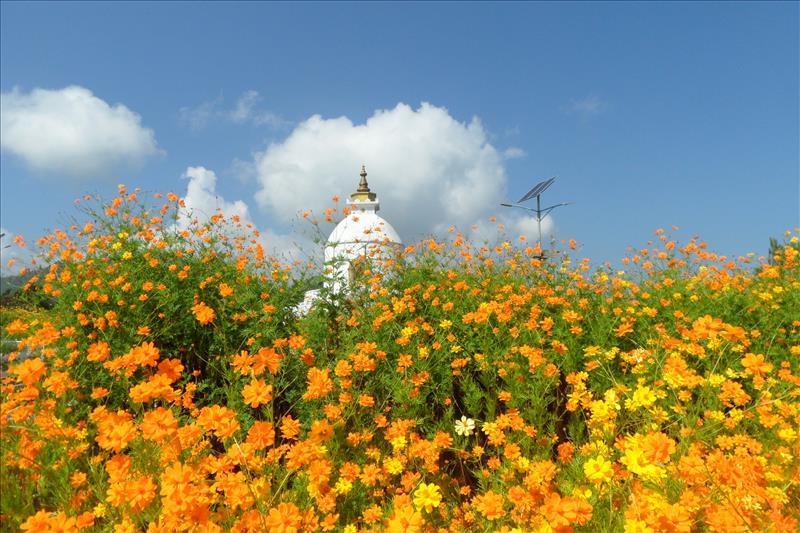
I first went abroad about 10 years ago, and I feel like I’m a completely different person by now! The mindset shifts I experienced thanks to traveling have had a profound impact on my life. Having been to 18 countries across four continents, I learned lots of valuable life skills: from communication and adaptability to creative problem-solving and independence.
Not only did a traveling mindset made me a happier person , it also gave me a new perspective on the world and my place in it. And it will do the same for you, if you choose to get off the couch and give it a chance!
The first amazing trip is all you need. Once you catch the travel bug, it’s hard to resist the urge to pack your bags and set off on an adventure around the world , as the excitement and anticipation of exploring new destinations and cultures becomes irresistible.
What is a traveling mindset, exactly?
A traveling mindset is a combination of a positive attitude and a discoverer approach to life that prioritizes openness and a willingness to explore new places and experiences. It involves embracing the unknown and being comfortable with uncertainty, as well as becoming open to different cultures, traditions, and perspectives.
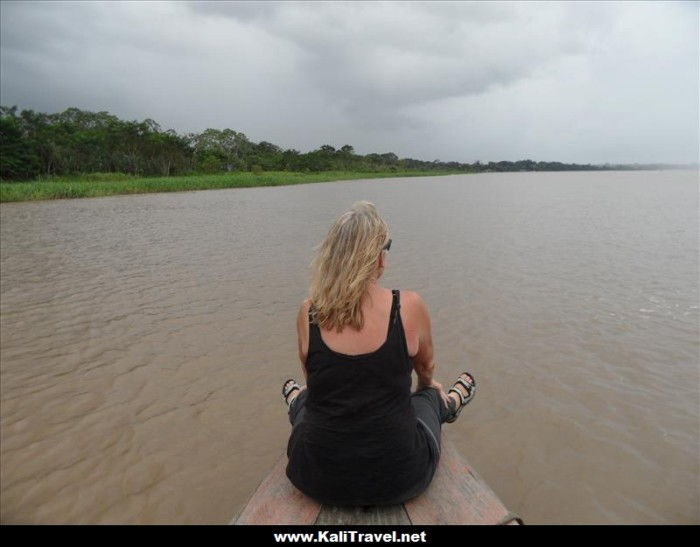
The process of adopting a traveling mindset teaches you to see the world as a place of endless possibilities , and to approach life with a sense of curiosity and adventure. You inevitably obtain an assortment of fundamental life skills and experiences that will stay with you long after your travels have ended.
When you pick up the mindset of a traveler, you’ll start naturally seeking out new adventures and opportunities, and take off on a new exciting journey of personal growth and transformation that will leave you feeling inspired and fulfilled!
6 Ways A Traveling Mindset Makes You Happier
1. traveling expands your comfort zone.
The traveling mindset is one that constantly seeks to push past comfort zones and experience new things. When you travel, you are often put into unfamiliar and challenging situations that can be uncomfortable at first. However, this discomfort is exactly what helps you to grow and expand your comfort zone.
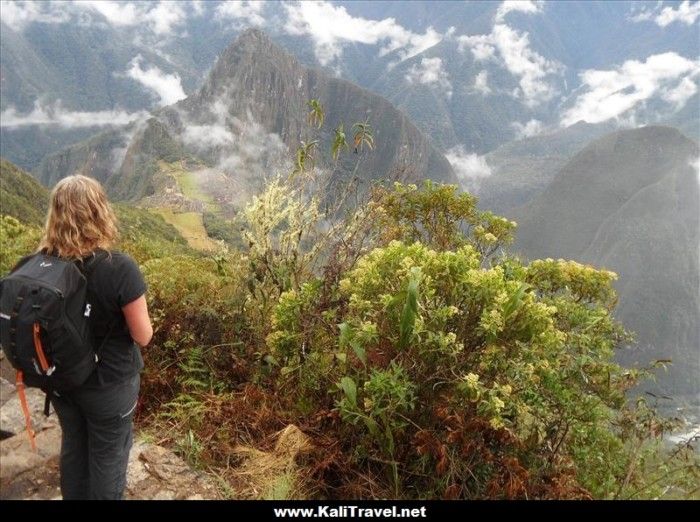
Traveling can boost confidence and provide a sense of independence that can be difficult to achieve in your day-to-day life. When you navigate new places on your own, you learn to rely on yourself and make decisions that you might not have thought possible. This, in turn, can give you the courage to tackle challenges in other areas of your life and approach them with a newfound sense of confidence and determination.
For example, my first solo trip abroad opened my eyes to all the ways I used to rely on my husband when traveling. There were literally no familiar faces in the whole country around me, so I suddenly had to rely on my own instincts and judgments to make creative decisions and navigate unfamiliar territory!
This experience not only expanded my comfort zone but also helped me to feel more confident and independent in everyday life.
2. You become a stress resistant problem-solver
When you adopt a traveling mindset, you learn to be more stress-resistant. Frequent travellers know that things don’t always go as planned: flights get delayed, information from the Internet appears outdated, and expectations don’t necessarily match reality.
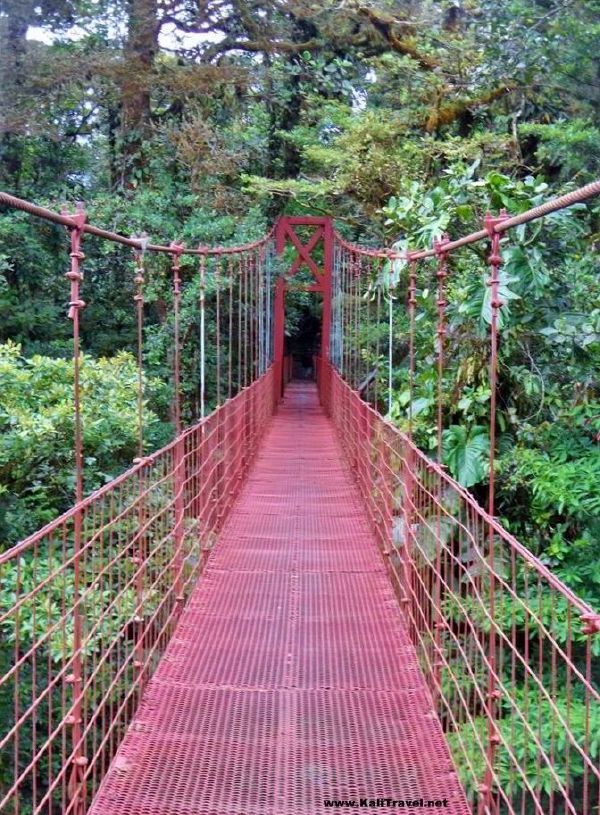
Through dealing with these situations, you learn to be adaptable and flexible, and to find new solutions when something goes wrong. And these skills don’t just apply to travel – they can be valuable in your everyday life, too!
When you encounter a stressful situation, it’s easy to become overwhelmed and anxious. But when you have a traveling mindset, you learn to stay in control and keep a clear head, no matter what happens. This can help you maintain a sense of calm and balance, both on the road and in your daily life.
Traveling also allows you to gain a different perspective on the world and the challenges you may face. You learn to approach situations with a problem-solving mindset and adapt to unexpected changes, which might come out helpful later in life and at work. Knowing how to release stress is crucial for maintaining a healthy mindset , which is the first step to living a happy life.
3. Traveling makes you open-minded and knowledgeable
I think one of the most significant benefits of traveling is that it broadens your horizons and helps you become more open-minded and knowledgeable. By exposing yourself to different cultures, you learn about their history, traditions, and beliefs, which can lead to a shift in your own beliefs and perceptions. Traveling helps you become more tolerant and inclusive, and challenges any preconceived notions you may have had.
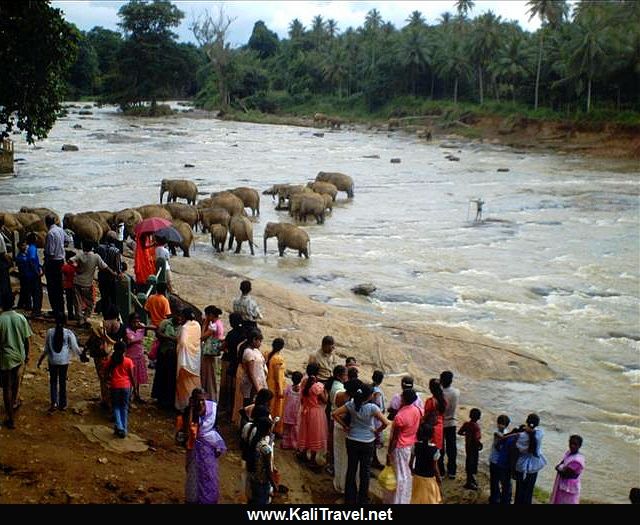
Think about it: you literally get out of your usual bubble where everyone has the same ideas and views of the world, and immerse yourself into a totally different environment. People talk in a different way, dress in a different way, and might not see the world the same way as you do. No wonder it’s often described as a culture shock!
And let’s talk about all the things you learn for a moment.
During my trip to Sri Lanka alone, I learned more about Buddhist traditions and ayurvedic medicine than in more than two decades of my life before that. It was fascinating to immerse myself in a culture that was so different from my own, and to learn about their practices and beliefs! I’m especially grateful for trips like that because they helped me develop a greater appreciation for cultural diversity.
By the way, if you are bad at Trivia, traveling more is a pro tip that will naturally make you so much better at it!

4. You become more mindful and start to appreciate your life more
Traveling has a way of making you more mindful and present, reminding you to appreciate the joys of life that you often overlook in your daily routine. By being in new and unfamiliar surroundings, you become more focused on the present moment and the experiences that are unfolding in front of you.
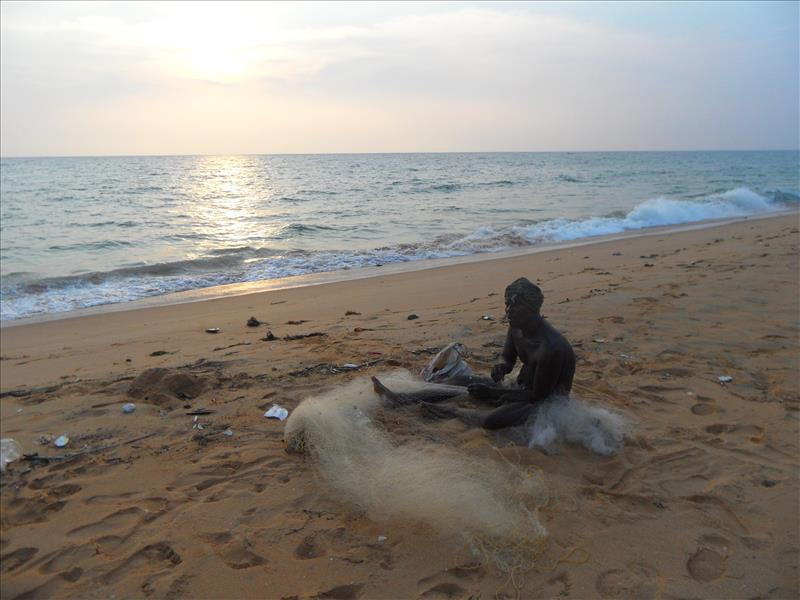
As you have an unspoken goal of making memories that you’ll cherish for the rest of your life, you usually pay attention to what’s really happening rather than spend your time glued to your phone and watching others.
Furthermore, travelling can open your eyes to how fortunate you are and help you cultivate a sense of gratitude. When you see the poverty and hardship that many people in developing countries face on a daily basis, it can be a humbling experience that makes you appreciate what you have.
On my own travels, I’ve witnessed firsthand the resilience and kindness of people who live with very little and find happiness nevertheless, and it has inspired me to be more grateful and present in my own life.
5. You discover new things that can make you happy
As a traveler, you find that happiness can come in the simplest of things ! You might be surprised at how much joy a beautiful view, a good conversation with a stranger, or a delicious local meal can bring, especially after a long exhausting day of exploring a new city.

Plus, traveling often requires leaving behind people or things that make you unhappy or stress you out. So you can focus on the things that matter most to you.
As you spend more time on the road, you’ll also develop a keen sense of what’s important in life and what’s not. You’ll find yourself living with less and enjoying it more!
And let’s not forget the thrill of learning a new language. As you explore new places and interact with locals, you’ll naturally pick up some new words and phrases, and a desire to know more.
For me, learning Spanish while living in Málaga , German while volunteering at a conference in Berlin, and now a bit of French while exploring Canada has been a fun and sometimes incredibly useful experience. It’s not just about being able to communicate, it’s also about gaining a deeper understanding of the culture and people around you.
6. Traveling makes you a better friend
Since traveling teaches you to be more accepting of different ways of life , you become more compassionate, empathetic and supportive to others. This, in turn, helps you build more meaningful connections in the future, and generally be a better friend.
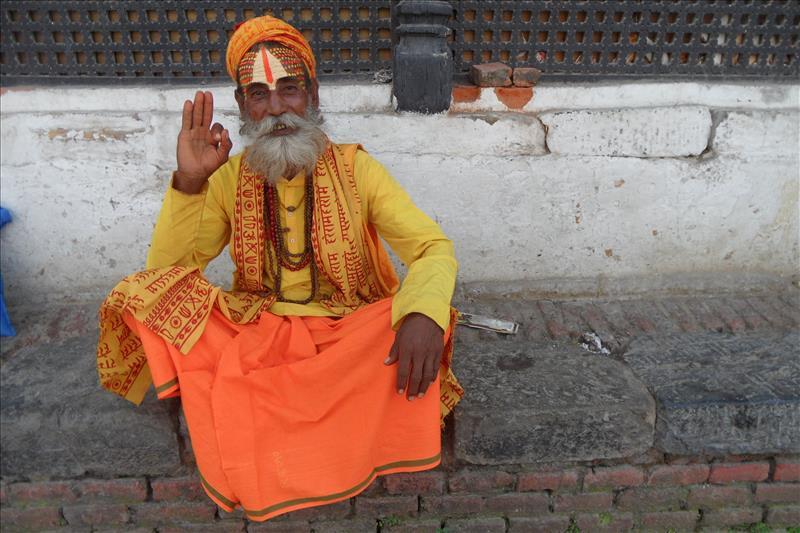
Exploring the world in a unique way makes you more interesting since you are able to tell stories that your friends haven’t heard before, and bring fresh perspective to the conversations. It also helps you attract new like-minded friends who share your sense of adventure!
By the way, never hesitate to jump at the opportunity to travel with friends: it strengthens your bond by creating shared experiences and precious memories that last a lifetime.
Personally, traveling has made me more easygoing and flexible, as I was not always open to the idea of spontaneous adventures. As someone who likes planning trips thoroughly, I learned to allow for the unexpected and worry less about the things I can’t control.
Conclusion: Why traveling is important
I hope I made you excited about traveling, at least a little bit!
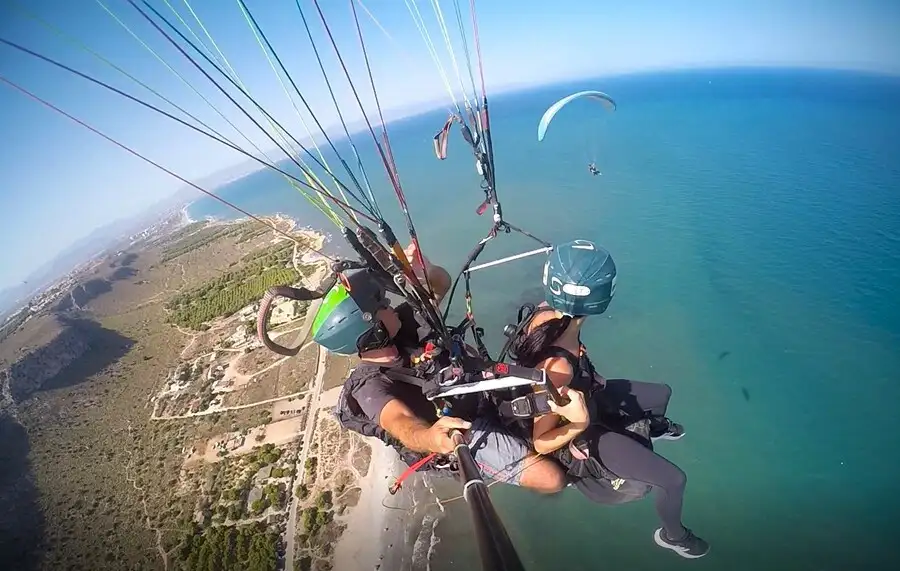
As you continue to travel, you become more comfortable with the unknown, more confident in your abilities, and more open-minded in general. You also develop a sense of wanderlust that drives you to explore the world and seek out new adventures.
Take your personal growth to new heights by embracing a traveling mindset, where every adventure is an opportunity for life-changing experiences and incredible self-discovery!
About the Author

Juliet is a certified happiness coach and a positive mindset blogger. She writes about finding happiness within and sourcing joy from the little things in life.
Visit her blog Utterly Positive for daily encouragement and tips on living a fulfilling mindful life.
“Remember that happiness is a way of travel – not a destination.”
How has a traveling mindset affected your life and brought you happiness?
Related Posts on How a Traveling Mindset Affects your Life and Brings Happiness
7 Day Adventure from Cuzco to Machu Picchu, Peru
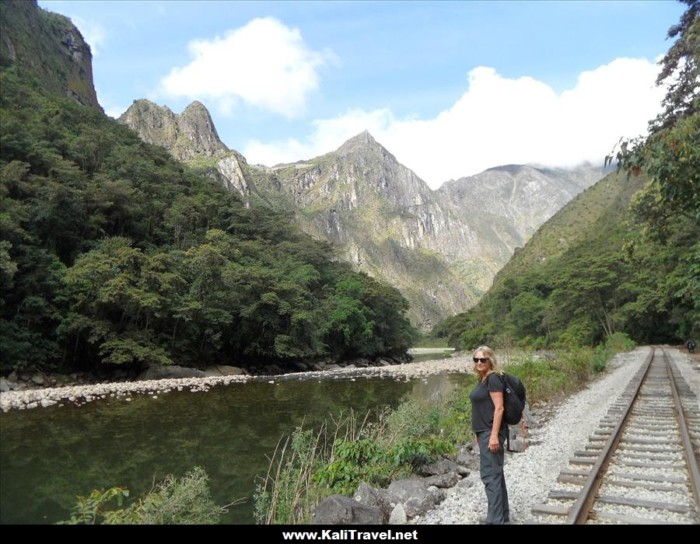
Our adventure from Cuzco through the Sacred Valley to Machu Picchu (Peru).
Machu Picchu is one of the new 7 Wonders of the World! Peru’s most treasured site, one of the most spectacular places on the planet and a must-see on our world trip!
Nepal Poon Hill Trek – Ghorepani to Tadapani
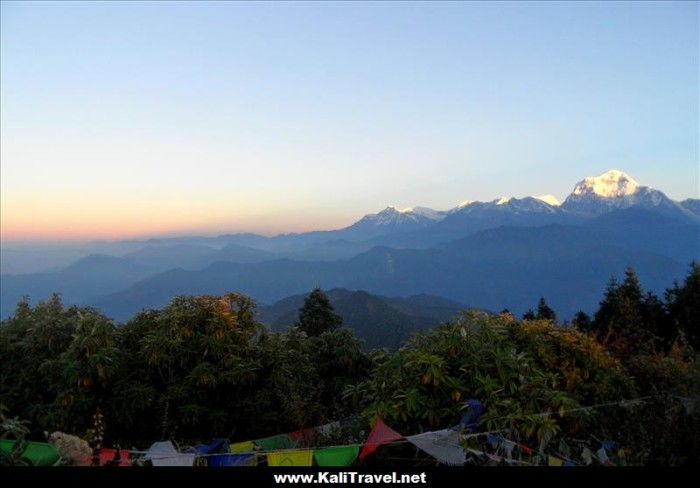
I didn’t realize how excited I would be to get up at 4 am! Throwing on some warm clothes, my hiking boots and a headlamp, I began the walk up from Ghorepani to Poon Hill, to see the sunrise over the Himalayas.
Munroe Island – Exploring Kerala Backwaters, India
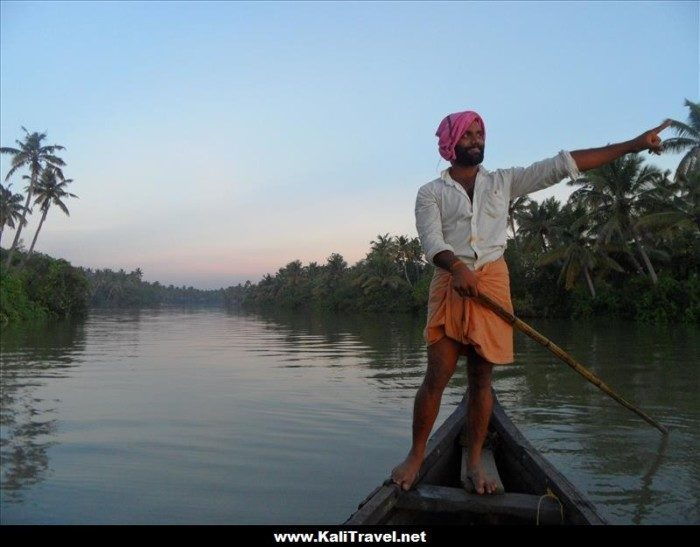
Munroe Island – 2 days discovering a legendary paradise in Kerala Backwaters, India .
There’s a secluded island hidden somewhere in the South Indian Kerala backwaters… travellers talk about a perfect tropical inland island but no one knows the name or location. Intrigued by the legend, I investigated and actually went there myself…
Leave a Reply Cancel reply
Your email address will not be published. Required fields are marked *
Save my name, e-mail, and site URL in my browser for next time I post a comment.
Recent Posts
- New Zealand Road Trip Guide (North And South Islands)
- 1-Day Rome Itinerary: How to See Rome and The Vatican
- Travelling On The Greenland Coastal Ferry, Sarfaq Ittuk
- Why Visit Greenland: A Once In A Lifetime Travel Experience
- A Day In Siena (Walking Itinerary + Map 2024)

Where You Should Travel Next, Based on Your Personality Type
- Myers Briggs
- Self-Development and Wellbeing
Planning your next vacation? Everyone looks for something different in a travel destination. From fun-filled, action-packed adventures to authentic cultural experiences, your personality type plays a big role in the types of destinations you’ll enjoy. Whatever you score on the Big Five personality test , or any other test for that matter, rest assured that there’s a perfect destination for everyone!
Here’s where you should travel next, based on your personality type.
Extraverted Explorer
If you’re an Extravert, you’re probably an enthusiastic and excitable traveler. You’re eager to explore the best of what the world has to offer and seek out new adventures wherever you are. For this personality type, you’ll love destinations that offer a wide range of different experiences and opportunities from food to history to nature and everything in between!
Here are some destinations you might like:
- Melbourne, Australia
- Sibiu, Romania
- Mexico City, Mexico
These destinations are probably not the first places that come to mind - and that’s what makes them perfect for Extraverts! Head to these spots and hunt out new experiences that few travelers get to explore!
Introverted Vacationer
If you’re more of an Introvert, you’re probably better off traveling to calmer, more low-key destinations. Look for places that are good for solo travelers, especially if you prefer spending time alone. The best locations for Introverts are not over-crowded or overly hectic. They’re perfect for enjoying solitude and quieter activities and it’s easy to get out of the city and into the peaceful countryside.
Here are some destinations you might like:
- Cambridge, UK
- Kyoto, Japan
- Vancouver, Canada
These destinations are known for being calmer than the capital cities. There’s plenty to see and do but you can also find plenty of chilled cafes and tranquil spots where you’re free to just be yourself and relax.
Spontaneous Free-spirit
For free-spirited travelers who are always on the go, choosing just one location can be a challenge! You need destinations that are as unstoppable as you are, where the fun never ends and you are always just a phone call or a chance encounter away from an adventure. Look for cities that thrive on spontaneity and self-reliance. The best destinations for your personality type are ones where you can wake up at 3am or 3pm and still have tons of fun.
- Istanbul, Turkey
- Bangkok, Thailand
- New York City, United States
These destinations are all about 24-hour adventure. You’re sure to meet like-minded people and have an awesome time. The best way to travel? Turn up and see what happens!
Committed Culture-lover
If your idea of the perfect trip is seeking out cultural experiences like museums, historic sites and authentic local cuisine, you probably score highly for Openness in the Big Five Personality test. People who are high in Openness tend to be creative, imaginative and enjoy talking and thinking about new theories.
In this case, your ideal travel destination will depend a lot on your past experiences - if you’re a novice traveler, a European capital with lots of history is a great option for you. If you’ve already seen most of the best-known destinations in the world, it’s time to look further afield.
- Paris, France
- St Petersburg, Russia
- Muscat, Oman
The world is full of incredible places with incredible cultural experiences just waiting to be uncovered. These destinations are ideal for letting you get closer to the past - and the incredible writers, philosophers and artists who lived there.
Planner in Paradise
Are you the type of person who loves having a schedule? Do you plan to the tenth degree and know exactly what you’re doing at every hour of the day? If yes, you probably score high in Conscientiousness. For this personality type, the best destinations are the ones where there’s lots to do. Planner personality types aren’t usually the ones who get on well in slow-paced destinations. They like to know the top spots to see and you can bet they’ll see every single one!
Here are some destinations that you might like:
- Rome, Italy
- Washington DC, United States
- Kandy, Sri Lanka
It’s easy to set a full itinerary for these destinations and there’s no shortage of things to visit. It’s time to get planning!
Nervous Navigator
If you score highly for Neuroticism in the Big Five personality test, you might struggle to relax when you're traveling. If you’re often anxious or find you get stressed easily, it’s a good idea to stick to destinations that are more familiar and easier to navigate.
Destinations that are used to tourists are a good option for nervous travelers. You might also like to look out for countries where people speak your language. The other option is to travel with an agency or tour group where someone else takes care of the key details. This can help you to relax a little more.
- Copenhagen, Denmark
- The Maldives
These destinations are all tourist hotspots. Most people you meet will speak English and they’re generally very safe for travelers. This makes them ideal locations if you’re more nervous.
Adventurous Adrenaline Junkie
There’s one specific travel personality type that’s easy to spot - the adrenaline junkie! These people usually score highly for Extraversion and it’s not hard to see why! If you’re this type of traveler, you’ll love any adventure that involves being active and getting your heart pumping. From paragliding to bungee jumping to white-water kayaking, you’re up for anything that involves a thrill.
- Cape Town, South Africa
- Sofia, Bulgaria
- Queenstown, New Zealand
Most of the best adventure spots are outside the cities so plan your trip with this in mind. Rather than booking a hotel, look out for guesthouses and camping spots close to where the action is happening! You’ll want to get up early and get out to make the most of every day.
Where should you travel next? Take our new What’s Your Road Trip Personality? to help you figure out your ultimate road trip!
Elizabeth Harris Elizabeth is a freelance writer and ghostwriter. She’s an anthropologist at heart and loves using social theory to get deeper into the topics she writes about. Born in the UK, Elizabeth has lived in Copenhagen, Frankfurt and Dubai before moving most recently to Budapest, Hungary. She’s an ENTJ with ENFJ leanings. Find out more about her work at bethharris.com

- Latest Research
- Personality & Culture

- Parenting, Family and Friends

- Finding Your Career Path
- Emotional Intelligence

- Personality in the Workplace

- Load more related articles

19 Inspiring Travel Experience Stories About Life-Changing Trips
Love inspiring travel experience stories ?
Then you’re in the right place!
Grab a snack and your favorite beverage and get ready to settle in, as you’re about to read some truly inspiring travel stories about life-changing trips.
In this roundup, some of my favorite bloggers share their best travel stories.
You’ll hear about travelers embarking on sacred pilgrimages, growing after a first solo female travel trip, deeply connecting with locals on the road, and getting out of their comfort zones in ways that completely alter the course of their life.
And if you’re looking for a unique travel experience, you’ll likely find it in the short stories about travel below.
Table of Contents
Free Travel Resources
But first… before we dive into these stories about travelling…
Make sure to grab free access to my #BeyondTheGuidebook Travel Resource Library:

Want to take the hassle out of trip planning?
Enter your name + email below to subscribe and snag access to my FREE Ultimate Travel Planning Resource Library, full of trip planners, cheat sheets, packing lists, Google Map itineraries + more! // Privacy Policy .
Woohoo! You’re officially a member of the Jessie on a Journey community.
Make sure to also connect with me on Instagram , on YouTube , and on Facebook to start traveling #BeyondTheGuidebook.
I regularly share about solo female travel, New York City, lesser-known destinations, unique experiences, active adventures, and how to turn your passion for exploring the world into a profitable business through travel blogging.
Click here to head back to the travel blog .
There is so much included!
Plus, I’m constantly adding new resources, guides, and personality quizzes to help you travel beyond the guidebook!
On that note, let’s dive into the inspiring travel stories .
1. Travel Experience Stories In South America
My travel story takes place in South America, back when I used to travel solo for months at a time.
I was in my mid-20s, and even though I’d backpacked Europe, Southeast Asia, and China and had studied abroad in Australia, the mix of intense excitement and nerves I had leading up to my South America backpacking trip was different.
And despite family and friends warning me that South America wasn’t a place for a solo female traveler , it ended up being my best trip ever and one of my life changing trips!
There are so many interesting short travel stories and unforgettable travel experiences woven into this trip, like:
- Getting invited to have dinner with my Brazilian plane seatmate and her grandma
- Having a group of complete strangers on Couchsurfing take me out for dinner and dancing on my birthday in Mendoza
- Attending a small house party in Argentina and learning about the tradition of mate
- Getting stuck on a broken-down bus and having an impromptu language exchange with an elderly woman in Peru
- Having a love interest back home break up with me via text, and then experiencing the kindness of strangers as a woman in my hostel who I barely knew treated me to ice cream to cheer me up
- Having a romance with a hostel mate in Ecuador and then traveling through the country together
- Living in a giant treehouse with a group of strangers during a solo trip in Brazil and spending our days exploring hiking trails and swimming and our nights drinking and exchanging stories about traveling
- Taking a 4×4 from Chile to Bolivia across the Siloli Desert to see otherwordly sites like rainbow lagoons and train graveyards in the middle of nowhere
- Experiencing some of the world’s most incredible natural wonders, like Iguazu Falls, Torres del Paine, the Amazon River, Uyuni Salt Flats, and Perito Moreno Glacier
At times the trip was also challenging, from dealing with long bus rides and car sickness to flipping over my bicycle handlebars in Peru and getting my body (and ego) badly bruised.
But, I was okay.
In fact, I was more than okay, as the trip showed me how independent I could be and what I was truly capable of. It also showed me the beauty of immersing yourself in cultures different than your own and connecting with locals who want to share them with you.
Years later, when people ask what my best travel experience has been this is the trip that comes to mind.
-Jessie from Jessie on a Journey
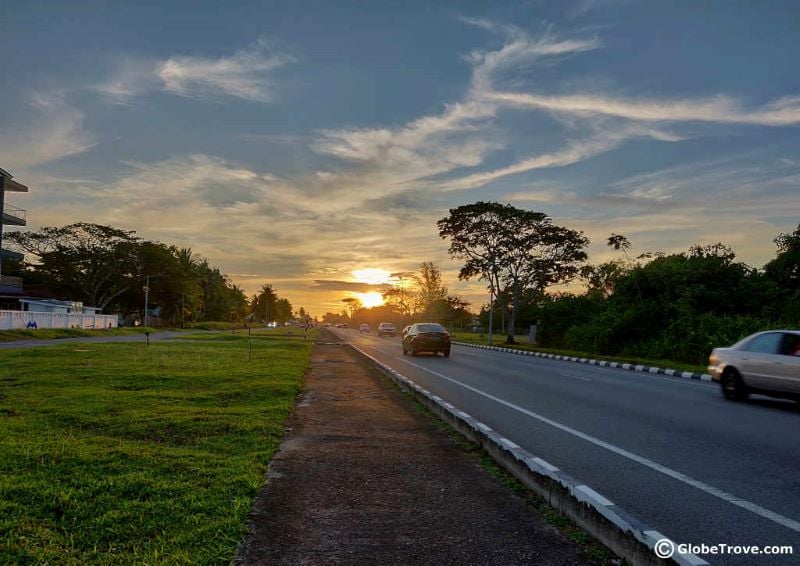
2. Traveling With An Open Mind
Many people think of travel as an experience and rightly so. Sometimes, however, you cannot choose the places you travel to.
This happened to me in 2019.
My husband found himself posted in Brunei for work.
Three months pregnant meant that I had a choice:
Either stay with him in Brunei for three months before returning back to India or remain in India, alone.
I chose the former. Not because of my love for the country but because I wanted to be close to him.
Brunei had never held any appeal to me. Whatever research that I pulled off the Internet showed me nothing other than one beautiful mosque.
The flights in and out of the country were expensive so traveling frequently out was not an option either.
I was engulfed by a sense of being trapped in a remote place.
Needless to say, I reached Brunei in a pretty foul mood. I think one of the things that struck me the most even in the midst of that bad mood was the large swaths of greenery that surrounded us.
Mind you, we were not staying in the big city but as far away on the outskirts as you could imagine. I’m not a city girl by any stretch and the greenery eventually soothed my nerves.
It took a week, but I soon found myself interacting with people around me. Fellow expats and locals all went out of their way to make me feel comfortable.
The more comfortable I felt, the more we explored. We trekked (yes, while pregnant!), we joined the board game community, and we enjoyed the local cuisine.
Three months later when it was time to leave, I found myself reluctant to say goodbye to the warmth of the country I had called home for a short while. I ended up having some of the most meaningful travel experiences there.
I think that my time in Brunei taught me a valuable lesson:
Don’t judge a place by what others say or a lack of information.
Sure, you may not always like what you see, but there will always be something that you will like. You just need to look hard enough to find it!
-Penny from GlobeTrove
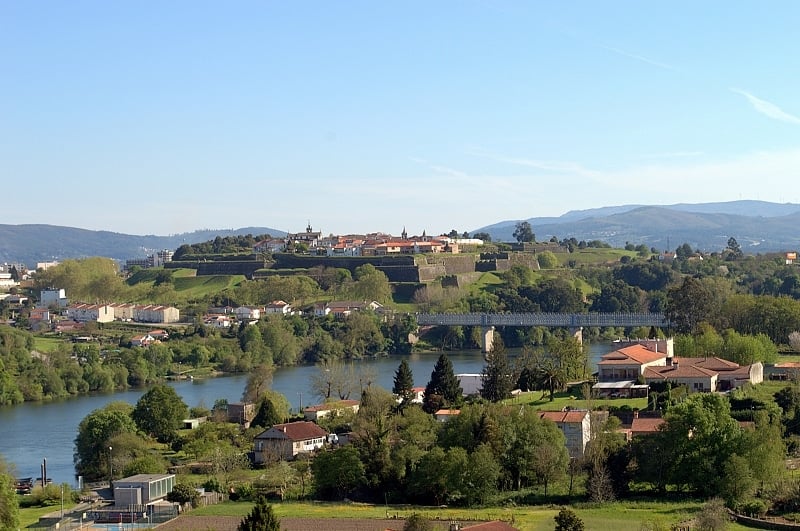
3. From Half-Day Hiker To Walking Holiday Enthusiast
I’ve always enjoyed walking but never in a million years did I imagine I’d end up walking over 200 kilometers (~124 miles) in 10 days, become a fan of walking holidays, and end up developing self-guided hiking routes in Portugal with a local tour operator as part of my business.
The shift from being someone who was content with an easy three-hour walk to an experienced multi-day hiker began with a brief taste of the Portuguese Camino de Santiago, an ancient pilgrim trail through Portugal to Santiago de Compostela Cathedral in Spain.
Back in 2013 I did a guided one-day hike along one of the most beautiful stretches of the Camino, north of Ponte de Lima. It’s also one of the most challenging sections so it was hard work, but the views from the top of Labruja Mountain made the climb worthwhile.
My guides were so enthusiastic about the thrill of arriving at Santiago de Compostela Cathedral after the challenges of day after day on the Camino that I began to think I might want to give it a go, despite not being religious.
Fast forward a few years and I set off from Barcelos with a friend of mine to follow the Portuguese Camino de Santiago.
Apart from suffering from chronic back pain, I thought I was quite fit but nothing had prepared me for how utterly exhausted I would feel at the end of each walking day.
This was truly a slow travel experience, as we were averaging about 20 kilometers (~12 miles) per day and by the time we reached our hotel, I would barely have enough energy to get cleaned up and find food before collapsing. I had envisioned plenty of sightseeing but that ended up being minimal.
Quickly, I realized the moral of this unique travel experience:
The Camino was all about making the most of the journey rather than the destination.
For me, that was quite a shift in thinking as I am usually all about getting to where I want to be as soon as possible so that I can start exploring. It was, perhaps, also my first step on the path towards mindfulness.
I will never forget the sense of achievement and progress at the end of each walking day, and the relief and pride I felt when we finally made it to Santiago de Compostela.
We met people who had walked the Camino several times and I can totally understand how it can become addictive.
Walking the Camino is one of the life changing travel experiences for many people!
-Julie from Julie Dawn Fox in Portugal

4. A Story About Traveling & Its Ripple Effect
Tucked away in far eastern Indonesia is a tiny archipelago of islands called the Banda Islands.
Apart from world-class snorkeling and some crumbling colonial buildings, the Banda Islands are mostly forgotten and would be described as a backwater by all accounts.
However, the Banda Islands are possibly the main reason that I am who I am today.
Well, the Bandas are the original Spice Islands.
Nutmeg used to grow on this tiny group of islands alone and nowhere else. The Dutch colonized Indonesia and promptly became the owners of islands where money grew on trees.
The only problem was that Indonesia was so far away that they needed a halfway stop to and from Indonesia.
That’s where my travel experience story comes in.
The same Dutch East India Company that traded in spice set up a halfway station at the foot of Table Mountain to break up their long journey. As a result, my Dutch ancestors arrived in the southernmost point in Africa , and generations later we are still there.
When I visited the Banda Islands, it dawned on me how something happening on the other side of the world can ripple out and affect people on the other side of the planet.
And I’m not the only one!
The spice trade was so important to the Dutch that they even traded a tiny island in the Banda archipelago for a much bigger island…Manhattan.
Yes. That Manhattan.
Before visiting the Banda Islands I never really knew about this part of my history.
Along with the spice that the ships carried back to Amsterdam, it also carried slaves. These slaves, more often than not, ended up in Cape Town.
Just like my European ancestors, they too became a part of Africa and added another shade to our beautiful Rainbow Nation.
It was in the Banda Islands that I realized how much of my culture, food, stories and even words in my mother tongue, Afrikaans, actually originated in Indonesia.
Because of these tiny islands, I am a true mix of Europe, Africa, and Asia. While I always thought I knew how all things in life are somehow connected, I didn’t really grasp it until my visit to Indonesia.
This could have been a resort travel experience story, as I went to Indonesia to swim and snorkel and relax on the world’s best beaches. And while I did get to do that, I also learned a lot about who I am as a person, my people, and my country…on another continent.
It is a travel experience I will never forget!
My visit to the Bandas has sparked a fascination with Indonesia, which I have visited seven times since. I’m already planning another trip to this spectacular country!
-De Wet from Museum of Wander
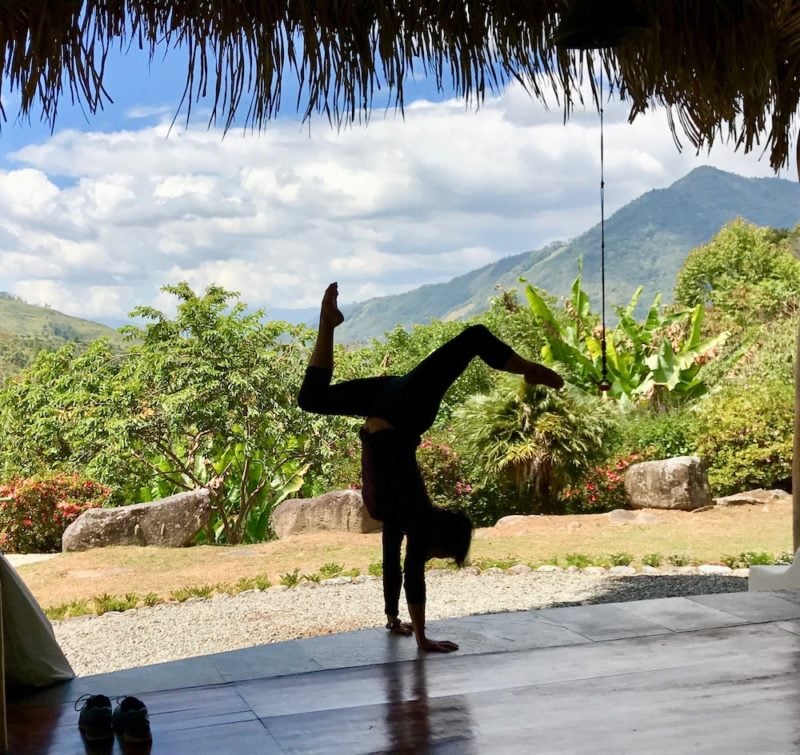
5. Awakening My Spirit In A Costa Rican Cloud Forest
In February 2017, I was just coming out of a decade of mysterious chronic illness that had shrunk my world.
And one of the things that finally helped me to resurface during the previous year was an online Qi Gong course I stumbled upon:
Flowing Zen .
To the casual observer, Qi Gong looks a lot like its better-known cousin, Tai Chi — the ancient art of moving meditation — but it’s actually energy medicine for healing.
In fact, it’s commonly used in Chinese hospitals.
My daily practice that year made such a difference for me that I dangled a reward for myself:
If I stuck with it all year, then I’d head to Sifu Anthony’s annual retreat in a cloud forest in Costa Rica the following February.
And I did! It was my first trip out of the country for more than a decade.
Just like that, I booked a solo trip — something I hadn’t done since I was an exchange student to Europe 30 years earlier — to San Jose where I met up with a dozen strangers and Sifu Anthony, our Qi Gong master.
We boarded a tiny bus and rode up, up, up around carsick-inducing curvy mountain roads into a magical cloud forest jungle where we finally arrived at The Blue Mountain (“La Montana Azul”) for a weeklong Qi Gong retreat.
There were no Internet or distractions here — just delicious organic vegetarian meals made with love and shared with the community under a gorgeous open-air palapa.
There were also colorful tropical birds singing in the jungle, as well as the largest arachnid I’ve ever seen in my gorgeous (but also roofless) room for a little extra adventure.
I’d felt a little energy movement during my year of online practice, but during that week on The Blue Mountain, my body began to really buzz with Qi — life force energy — as I Lifted the Sky, stood in Wuji Stance, and practiced Shooting Arrows.
I felt electrified and joyful.
And that was when everything changed for me.
At home, I had a successful career as a freelance writer, but I decided during my week in the cloud forest that I wanted more from life.
I wanted to explore the beauty, diversity, nature, and culture in every corner of the world.
And I wanted to share this intoxicating joyful feeling of life-giving freedom and adventure with anyone who wanted to come along for the ride.
Shortly after that, at age 53, I launched my travel blog.
Dreams really do come true. They are just waiting for you to claim them.
-Chris from Explore Now or Never
Enter your name + email below to subscribe and snag access to my FREE Ultimate Travel Planning Resource Library, full of trip planners, cheat sheets, packing lists, personality quizzes, travel guides, Google Map itineraries + more! // Privacy Policy .
6. From Rome With Love
This wasn’t the way I wanted to see Rome.
Sure, I was happy to spend Christmas in Rome and stand in awe of the city’s many iconic attractions. But, life wasn’t meant to turn out like this.
I was supposed to go to Rome with my mom back in 2012; however, life had different plans, because a week before our trip, I got a double kidney infection. A condition that required a week of hospitalization.
Although I was annoyed I had missed my trip, it wasn’t the end of the world since I was fine and everything seemed okay…until my mom developed a cough.
A cough that later became a heartbreaking diagnosis of stage four ovarian cancer.
My mom spent the final months of her life in chemo, desperately trying to fight a horrific disease so that she wouldn’t let her family down.
And she didn’t.
Instead, she showed us how to never give up on life, even if it was a losing battle.
So, when she eventually passed away, I booked a trip to Rome.
Sure, it wasn’t the trip I had hoped for. But, I knew that as her daughter, it was my job to live enough for the both of us.
And that’s exactly what I did.
Was I an anxious, sad, angry mess of a person?
Absolutely. I was still getting used to a world that my mother wasn’t a part of.
And honestly, you never get used to that world. You just deal with it because you don’t really have a choice.
But I also knew that I wanted my mom to live on through me and that I didn’t want to live a life where the haunting phrases “should of,” “could of,” and “would have” swirled through my head and ate away at my happiness.
So, I went. I packed a boatload of tissues, sobbed my heart out, and attended Christmas mass at the Vatican.
I also threw a coin in the Trevi Fountain, walked through the Colosseum, chowed down on gelato, and spent two weeks doing all the things my mom and I had wanted to do.
And that’s when it hit me. I had never gone to Rome alone because my mom had always been there with me. Maybe she wasn’t physically there, but I thought of her and felt her presence every minute of every day.
Her presence also reminded me that life isn’t about the things we buy or the money that we have.
It’s about making memories with the people we love; people that never really leave us since they are constantly influencing our lives in countless ways.
And after my trip to Rome, I finally knew that my mom would always be there because she had forever changed my life in the best possible way.
-Kelly from Girl with the Passport
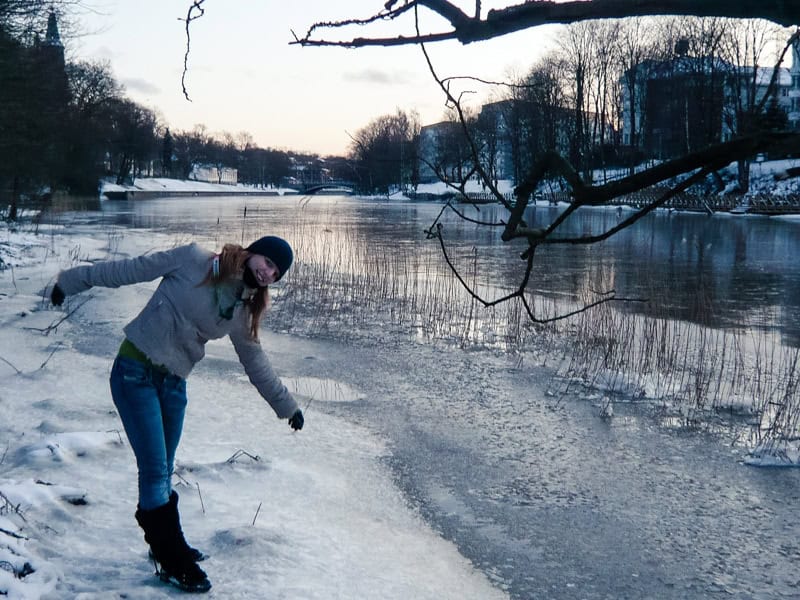
7. Studying In Finland
One of my major life-turning points happened during my exchange studies in Finland.
Until then, I was studying at a university in Prague, had a part-time job at a renowned management-consulting firm, and thought I was on the right path in life.
At the University of Economics where I studied it was notoriously difficult to get on an Erasmus exchange trip abroad since the demand was huge. Everyone wanted to go!
Regardless, I decided to sign up early for my last semester, just to see what the process was like to be better prepared for applying again in a year.
I did make it through all the three rounds and surprisingly got a spot at a University in Turku, Finland! I was ecstatic. The success brought its own challenges, but once you set your eyes on the goal, nothing can stop you.
And I had the time of my life in Finland. It was a fantastic personal travel experience.
I met the most amazing people, traveled a ton, partied a lot, and bonded with friends from all over the world.
Given I was one of the few people there who really needed to pass all her courses and additionally write her thesis, I managed to run on an impossible sleep schedule of four hours per night. But I made it!
My studies in Finland opened up my horizons, too.
The summer after, I wrapped up my life in Prague and went on to study in Germany and China . The whole time I traveled as much as possible, often going on solo adventures. It was only a matter of time when I’d start my own travel blog.
My Finland adventure led me to a life of freedom made up of remote work, travel blogging , and plenty of traveling. I couldn’t have asked for a better outcome. And it gave me one of my favorite true adventure stories that I can now share with others.
-Veronika from Travel Geekery
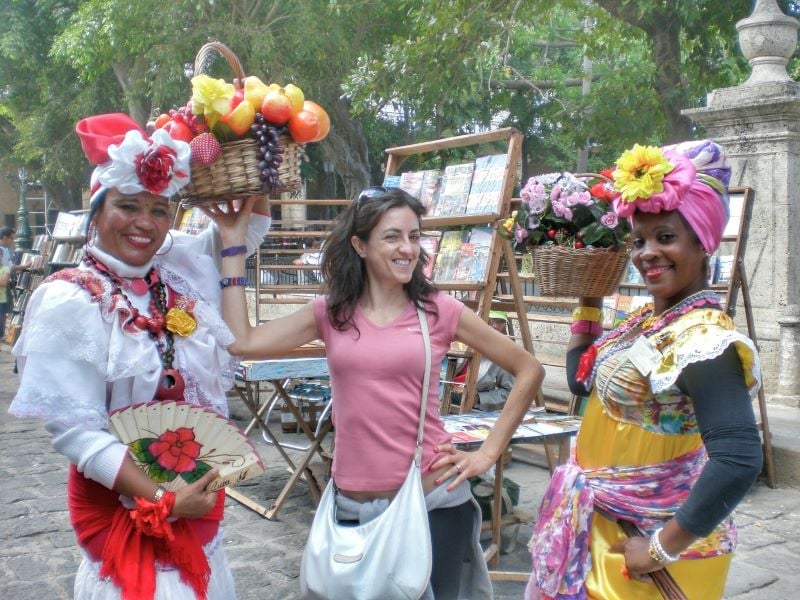
8. How Cuba Changed My Life
One of my favorite inspiring stories about travel takes place in Cuba.
I visited Cuba in February 2013 and it changed my life — and I like to think it did so for the better.
Interestingly, I expected a completely different country and was compelled to write about it when I got back home.
But let me tell you more.
I read copious amounts of blogs and travel diaries to prepare myself for the trip to Cuba so I thought I’d go in with a fairly good idea of what to expect. Each and every post I read spoke of marvelous landscapes, pristine beaches, crumbling but charming cities, and welcoming locals.
All of it was true, in my experience — except for the locals.
I didn’t find them so welcoming. At least, not genuinely so. They only seemed to welcome me as far as they could get something in exchange: money, clothes, pens, soap, you name it.
Each and every day in Cuba was a challenge to avoid the scams, to avoid being ripped off, to fight off each and every attempt of people trying to take advantage of me. I usually managed, but it was exhausting and it left a sour taste in my mouth.
Once I got back home I felt the urge to write about my experience — not for other sites or papers as I’d often do. This time I was afraid I’d be censored.
So I opened my own blog. With zero tech knowledge, zero understanding of online content creation and SEO, I started writing and telling people what they should really expect during a trip to Cuba.
I’d put up the occasional post, but continued with my usual job.
At the end of the year, my contract as a researcher in international human rights law at the local university ended, and I decided to stop pursuing that career for a while.
I packed my bags and left for a long-term trip to Central and South America . I started writing on the blog more consistently and learning, and eventually took my blog full-time , turning it into a career.
As of today, I have never looked back and have no regrets. This was a life changing traveling experience.
The one thing I’ll do, as soon as I can, is travel to Cuba to say thank you — because it changed my life in a way nothing else has ever done.
-Claudia from Strictly Sardinia

9. A Short Travel Story About Finding Inner Peace In Patagonia
Life in London is hard.
Life in London as a gay single brown refugee is harder.
Juggling between work, my passion for traveling, and the prejudices that I dealt with on a daily basis eventually took their toll on me and I reached a breaking point.
The fact that I couldn’t return home to see my family and being away for them for almost nine years was enough to hammer in the final nail in the coffin.
I almost had a nervous breakdown and in that moment of desperation, which I knew would define the rest of my life, I took a month off and headed to Patagonia.
It was probably the best decision I’ve ever made in my life. The 36 hours it took me to get to El Chalten from London were tiring but Patagonia blew me away.
On my first day there I did a 28-kilometer (17-mile) hike which included a steep mountain climb. It was incredible how moving through the forest helped me clear my mind. And as I stood in front of Laguna de Los Tres, the rain and clouds gave way to sunshine and a rainbow.
I felt at peace.
The countless hikes, great food, and the warmth of locals in Chile and Argentina helped me get back in my skin and find the peace I was missing in my heart.
Nature is indeed the best medicine when it comes to stress relief and I won’t be coy about hugging trees to speed up the process (it did).
Patagonia was life-changing for me.
The beauty of nature struck me at each point and every time I thought it wasn’t possible to beat the view, the next one did just that.
I came back a changed, resilient, and most importantly, a happy person.
-Ucman from BrownBoyTravels

10. Looking Inwards & Making Connections With Strangers
It was decades before I traveled solo for the first time in my life.
This trip — a six-day escape to Colorado — was the first trip that was not for business or family reasons but just to travel and discover.
As I prepared for it, I had a strange feeling of excitement and nerves at the same time. I had all sorts of thoughts and doubts:
Would it be fun?
Would I be bored?
Would I stay in bed all day or would I bounce with excitement to do the next thing?
I wasn’t sure. Little did I know that it was going to be a memorable journey of self-discovery.
As a good wife and mom, for me travel is always about the family; always thinking of who would enjoy what. It’s about family time and bonding. It’s about creating memories and travel stories together. It’s all so wonderful.
But on a solo trip who would I connect with? What would I say?
Well, I found that I got to do anything I wanted!
Usually when I travel with my family, if I feel like going on a drive that’s not on the itinerary or getting a snack no one else is interested in, we simply don’t do that.
So it was weird to just go do it. Really, that’s a thing?
As for making connections, it was so easy to meet locals while traveling and also to connect with other travelers. Honestly, I had conversations everywhere — on planes, while hiking, in restaurants, in the hotel lobby.
It was quite an eye-opening experience to meet a mom of 18 kids and hundreds of foster kids, a cookie baker, a professional photographer, a family of Fourteener hikers, and an internationally ranked marathon runner.
The inspiring stories I discovered were amazing and nothing like my wonderful safe life at home.
In terms of travel safety , I got to go rock climbing, solo hiking, driving up a Fourteener, eating alone.
And it was all fine. Actually, it felt surprisingly normal.
It was was just me, my SUV, and my backpack for a week. Most of all, it was a breath of fresh air that I didn’t know existed.
It’s wonderful to be back home and know that possibilities are endless and there is so much more out there to explore and be wowed by!
-Jyoti from Story At Every Corner
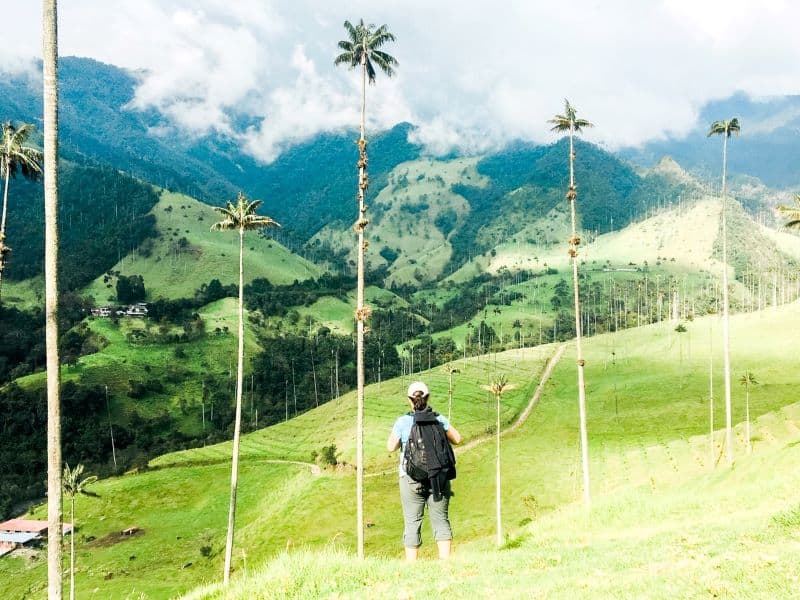
11. A Solo Hike To Find Connection
I have traveled solo many times, but I admit I was a bit uneasy booking my trip to Colombia . In part, due to the country’s dark past. But also because I desperately wanted to do the Cocora Valley hike, and if I’m honest, I was terrified.
This hike is located in the Coffee Triangle, an area recognized for its beauty as a UNESCO World Heritage Site. It features both rainforest and a stunning green valley speckled with cartoonishly-tall wax palms rising 200 feet or more.
It’s incredibly beautiful.
It’s also a long hike and quite challenging — it generally takes between six and eight hours and there is a steep area with over 3,000 feet of elevation within a quarter of a mile.
I wasn’t in hiking shape, so I was a little concerned. But, worst of all for me were the seven dodgy-looking suspension bridges.
I’m terrified of heights.
And, I’d be going alone.
I decided to go anyway and I met an incredible woman on the bus to Salento, the town near Cocora. She was also traveling solo and we agreed to hike together.
The town is a backpacker enclave and we met up with a small group of people all traveling solo. As the days passed, our group got larger and it was such a magical experience.
As much as I love city travel, this small town won my heart.
My new friend and I set off on the hike and met two other women who were nervous to do the hike. We all went together.
When we got to the first suspension bridge, I paused. I was embarrassed to admit my fear, but the bridge swayed widely and there was nowhere to hold onto.
When they realized how out of my comfort zone I was and how scared I felt, everything changed. Instead of me dealing with it alone, they were all there to encourage me.
One crossed the bridge to encourage me from the other side and they stayed off of it to limit the sway. Crazy enough, I not only crossed the seven suspension bridges, but I also crossed one an extra time when we went the wrong way on the trail.
I did it!
I was prepared to be blown away by Cocora Valley’s beauty, but what I wasn’t expecting was what a life-changing travel experience my time there would be.
-Sam from My Flying Leap
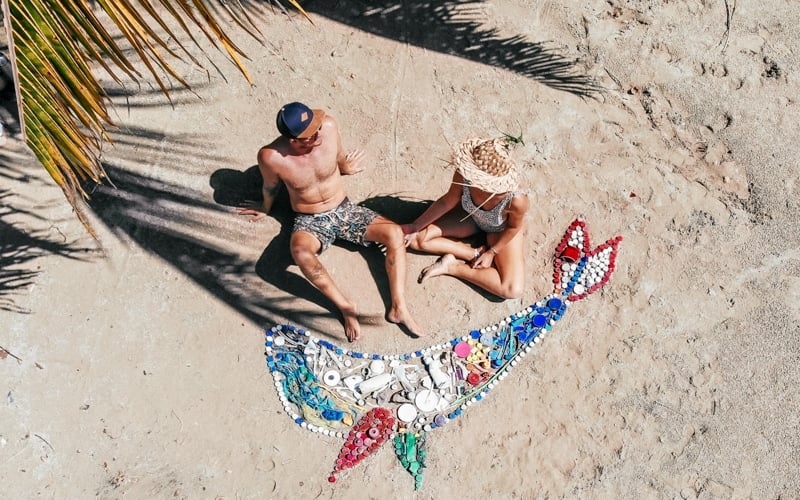
12. How A Pet Sitting Travel Experience Led To A Passionate Career
We wanted to go to the Caribbean but didn’t know much about the islands or how we were going to afford it.
By chance, a friend of ours in Australia mentioned “pet sitting” and that it is something you can do all over the world.
We quickly created an account on a pet sitting website and began searching for options. There were only a couple of sits available in that part of the world, but we tried our luck, sent a request, and to our surprise landed a three-month gig in a beautiful house in the US Virgin Islands — with an infinity pool overlooking the British Virgin Islands.
A month into our sit, we had explored the destination pretty well and so had a lot of time on our hands. We managed to secure another sit in Grenada, so our year was going to be taken up with Caribbean pet sits.
Inspired by a Canadian couple that had previously stayed at our Grenada housesit, we decided to start our own travel blog. We began by writing about The Virgin Islands, highlighting the beautiful beaches and funky bars.
But for every photo of a beautiful beach there were 10 photos of trash.
It was hard to ignore the plastic pollution issue, especially on such pristine and remote beaches. So, we began to share photos of the trash we saw and how much we could pick up on our daily dog walks.
The more we looked into plastic pollution, the more we realized the severity of the global plastic pandemic. From that point, we used our platform to create awareness and highlight ways to say no to plastic and travel plastic-free .
We changed our daily routines, our way of living, and even our diets to accommodate more organic foods and little to no plastic packaging.
It’s been over three years now and we continue to do what we can. This journey has led us to some amazing places, working with great conscious brands and even organizing a country-wide beach clean-up campaign in Grenada.
Our aim now is to keep on going.
We love connecting with like-minded people and love the shift over the last few years that brands have made towards creating more sustainable products and services.
It’s been an amazing few years that was sparked by a conversation about pet sitting. Who would have guessed?
-Aaron & Vivien from The Dharma Trails
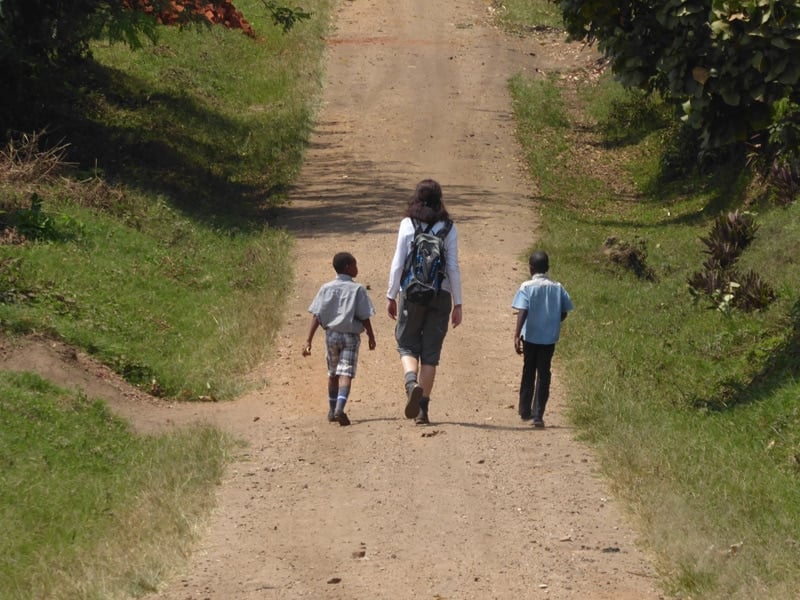
13. Learning To Slow Down The Hard Way
On Christmas of 2017, I was born again.
We like to spend our Christmas holidays somewhere warm abroad, and that year we chose Uganda.
Nature, wildlife, and sunny days were a blessing when it was so cold and dark in Europe. Life was beautiful, and we had a rental car and a busy schedule ahead to explore the country.
This is where this short travel story turns into one of my more scary travel experiences :
At Murchinson Falls National Park, we had a car accident.
I lost control of the car, and it rolled over, destroying windows, chassis, and engine.
But we were alive! My right arm was severely injured, but we managed to walk to our lodge, not far inside the park.
In the lodge, I was happy to learn that there was a pretty decent American hospital in Masindi that was just a one-hour drive from the lodge. Moreover, one of the lodge’s guests was a nurse who cleaned the wound while we were waiting for the taxi from/to Masindi.
The hospital took care of us, and after a couple of injections and stitches, I was ready to head to our new hotel in Masindi; however, my wound required daily dressing and more injections, so we were asked to stay in town for a few days.
Masindi is the kind of place where you may want to stop to buy some food or water, but that’s it.
The town’s highlights were the market and our daily visit to the hospital, so we ended up looking for the small things, chatting with the medical staff, the hotel staff, the people in the market, and learning more about their customs.
We learned to slow down the hard way.
When we were allowed to leave, we took a road trip south through the country to see something else. We did not care about our travel bucket list anymore — we were alive, and we wanted to enjoy Uganda’s unique nature and its people.
In the end, our Uganda trip was not about the places that we saw, but the people that we met. It was travel for experience vs sightseeing.
I hope to revisit Uganda one day, with a stop at Masindi for some food, water, and maybe something else.
-Elisa from World in Paris
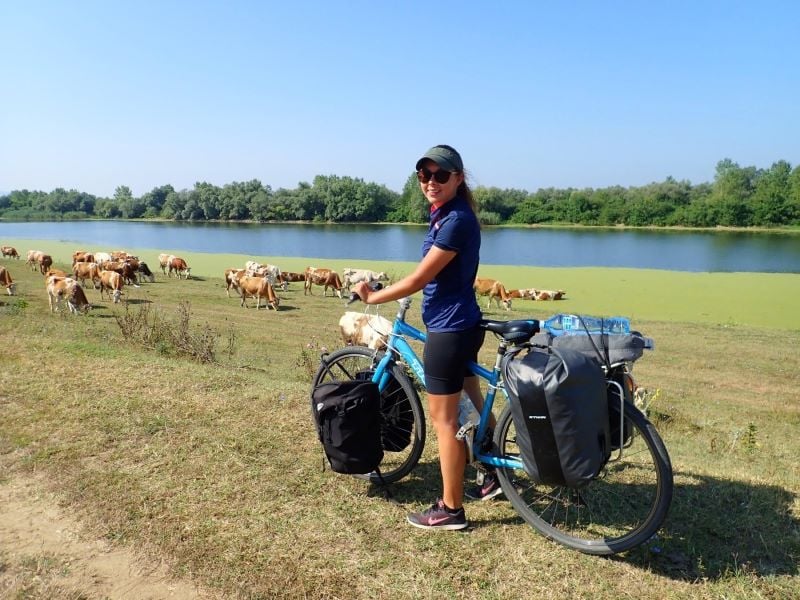
14. A Cycling Trip To Remember
During the summer of 2019, I cycled solo from London to Istanbul. This huge bicycle tour took me 89 days and through 11 countries.
As you might expect, it was a challenging yet incredible journey, which saw me pedal along some of Europe’s greatest rivers, pass through some of its best cities, and witness some of its most beautiful scenery.
It’s becoming more and more important for us to think about the impact that travel can have on our environment. This was the inspiration for my bicycle tour; I wanted to find more responsible ways to explore the world and avoid flights where possible.
I discovered that bicycle touring is one of the most eco-friendly ways to travel, as using nothing but a bicycle and your own pedal power you can carry everything you need while covering surprising distances each day.
The simplicity of life and the sheer amount of time I spent cycling alone gave me a lot of time to just think . This really helped me to come to terms with some personal problems rooted in my past and, as a result, I arrived solo in Istanbul with newly found confidence, independence, and liberation.
Cycling across the entire European continent may seem like an impossibly daunting task, but I assure you, it will make you feel like a new person, just like it did for me.
-Lauren from The Planet Edit
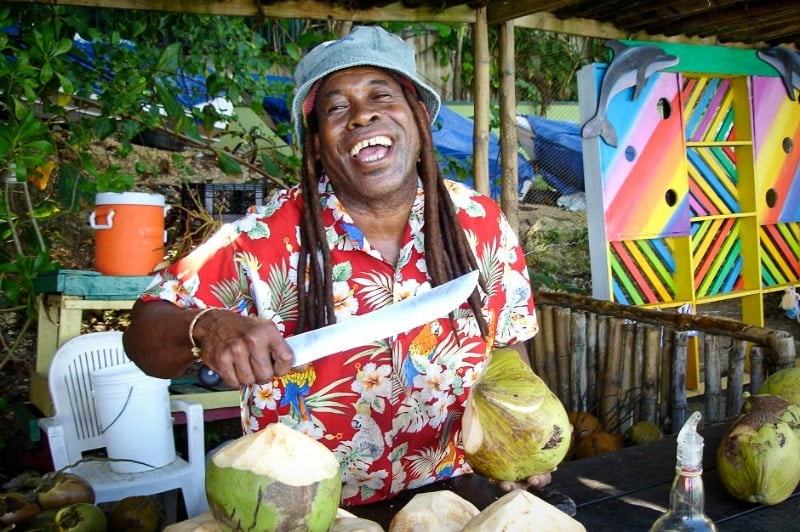
15. How The Caribbean Shaped Me Into A Fully Sustainable Traveler
One of my first international trips as an adult was traveling around the Caribbean .
I checked into my hotel in Jamaica and asked for a recommendation for a local place to eat. The receptionist told me that under no circumstances should I should go into the town because it was really dangerous, but that — to my luck — the hotel’s restaurant offered wonderful Caribbean food.
I pondered my options:
Did I really want to spend all my time on the beach without getting to know a single local?
I was a very inexperienced traveler and very young, but there was only one answer to my question:
Absolutely not. I was not going to be visiting a new place and staying hostage in a hotel chain. So out I went.
The poverty hit me in the face. After only seeing fancy resorts, the reality was hard to swallow.
A few locals approached me and were super curious as to what I was doing there alone, since most tourists didn’t go there.
I told them I was interested in meeting them and experiencing their culture. And just like that, I was embraced.
We met more people, had some food, and then we danced the night away. They had so little, yet they wanted to share it with me. They wanted to make me feel welcome.
And they undeniably did.
The next morning all I could think about was how all the money most tourists spend goes to big corporations. The locals have to be thankful if they get a job that pays minimum wage, while foreign businesses earn millions.
I have always been environmentally conscious, but this trip made it clear that sustainability goes well beyond nature and wildlife.
It’s also about communities.
From then on I always look for locally owned accommodation, eateries, guides, and souvenirs.
Sustainability, with everything it entails, became a motto for me and changed the very essence of the way I travel.
-Coni from Experiencing the Globe
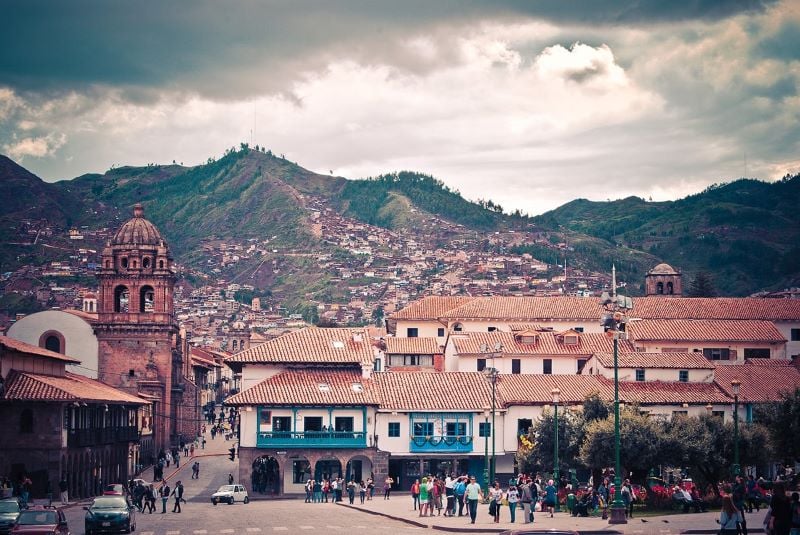
16. Lessons From My Students In Peru
One of the most life-changing trips I’ve ever been on was a volunteering experience in the stunning city of Cuzco in Peru.
In this last travel experience, I spent a month there teaching English and Italian to a group of local adults. And even though my time there was short, the travel experience was so humbling that it changed my outlook on life.
My lessons took the form of active conversations, which essentially turned into a massive multilingual cultural exchange between me and my students. Hearing my students talk about their lives — and realizing just how different they were from mine — made me look at my own life with a fresh new perspective.
One person spoke about the three years he spent living in a jungle with his dad, where they fed off of animals they hunted in order to survive.
Another student told me about her ultimate dream of mastering English so that she could become a tour guide and have a more stable future.
For me, these stories were a reminder of just how small I am in this world and how much we can get consumed by the small bubbles we live in.
Most of all, my students showed a passion and appreciation for life that I’d never witnessed before.
This is true for the locals I met in Cuzco in general. The quality of life in Cuzco is very modest; hot water is scarce and you learn to live with little.
But the locals there do way more than just that — they spontaneously parade the streets with trumpets and drums just because they’re feeling happy, and their energy for the simple things in life is incredibly contagious.
It was impossible to not feel inspired in Cuzco because my students always had the biggest smiles on their faces, and the locals showed me again and again that simply being alive is a blessing.
I went to Peru to teach, but ended up learning more from my students and the locals there than they did from me.
Ever since I got back from that trip, I made it a goal to slow down and not take the simple things in life for granted.
Every time I get upset about something, I think about the Peruvians in Cuzco parading their streets in song and pure joy, and I tell myself to stop complaining.
-Jiayi from The Diary of a Nomad
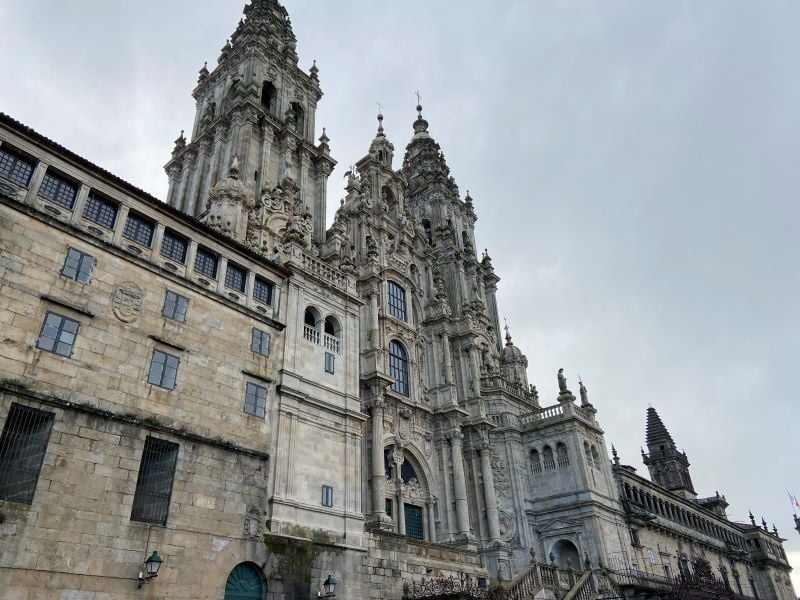
17. Braving Travel With Chronic Pain
Santiago de Compostela is a beautiful city with a prominent cathedral positioned centrally within the city.
While the historical cathedral attracts numerous visitors, even more well-known is the route to Santiago de Compostela, Camino de Santiago –- the world-famous pilgrimage route that has a plethora of trailheads and ends in Santiago.
Home to locals, students, English teachers, and those on a spiritual pilgrimage, personal conquest, or a great outdoor hiking excursion, Santiago is a magical city.
My introduction to Santiago de Compostela doesn’t begin on the pilgrimage route, yet ends with a spiritual awakening analogous with those other unique pilgrimage stories.
It was my first solo trip abroad teaching English in Spain, a country that’s always been on my travel bucket list. A small town outside of Santiago was selected as the school I’d be teaching at for the year.
Unknowingly, this teach abroad program chose the perfect city for me to live in.
A year prior, I suffered a traumatic brain injury that left me unable to function normally and complete average tasks. Migraines, headaches, and dizziness became my body’s normal temperament, a hidden disability invisible to the naked eye.
Braving travel with chronic pain was the first lesson I learned during the trip.
The vast green outdoors and fresh dew from the morning rain enlivened me daily and reminded me about the importance of slowing down so I could enjoy traveling with my hidden disability.
I also learned to stop often for daily tea breaks and to embrace the long lunch hour, siestas , with good food, company, and a nap to rest.
Meeting locals , indulging in local food, and learning Spanish allowed me to connect deeply with the beautiful culture of Santiago. After all, my dream was to travel to Spain, and I more than accomplished that dream.
Difficult or not, I learned to own my dream and I was more than surprised with the results.
Who knew that a year after my injury I’d be traveling the world with chronic pain, and for that, I’m eternally grateful.
-Ciara from Wellness Travel Diaries
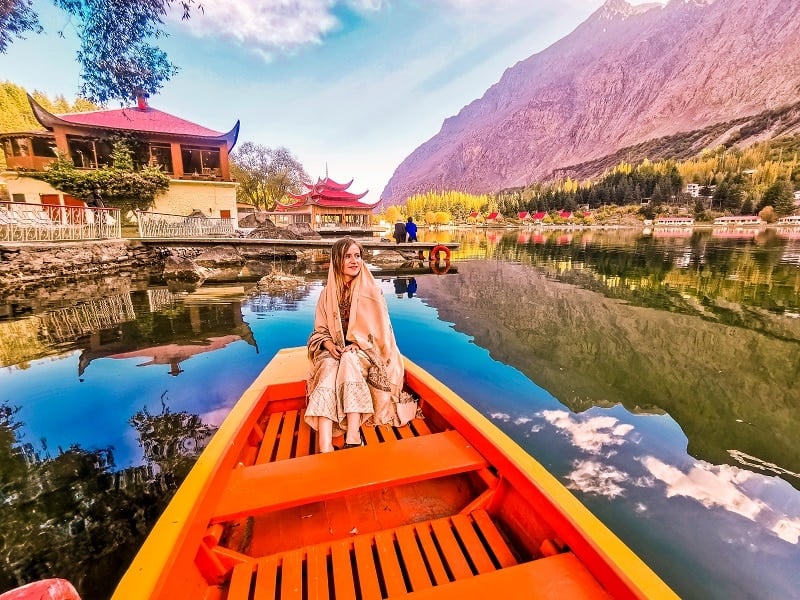
18. A Blessing In Disguise
2020 has been a wild year for all of us and foreign students in China are no exception. As soon as the malevolent virus began to make its rounds in China, our university sent us home for “two weeks.”
However, within a short time, countries began to shut their borders and these “two weeks” turned into months, a full year even.
Crushed by the burden of online lectures and virtual labs, my boyfriend and I packed our bags and caught one of the first flights to his home country of Pakistan.
I had always been an over-ambitious traveler. I believed numbers were everything — the number of countries I visited, the number of hours I spent on a plane, the number of international trips I took in a year. These numbers were what defined me.
My feet were constantly itching and I never liked to spend more than a few days in a place before heading to the next country. Revisiting a place felt superfluous to me.
That’s why I was hoping to spend a month or two in Pakistan and then continue to check new countries off the list — after all, my online classes finally granted me the freedom to “work on my numbers.”
But as is usually the case in 2020, things turned out quite different from what I had expected. Borders remained closed and worldwide infections stayed rampant. At this point, I have already spent nearly half a year in Pakistan.
During this peculiar time, however, an amazing thing happened:
My mindset about travel started to change and I began to look at my long stay in Pakistan as perhaps my most valuable travel experience ever.
I may not have visited dozens of countries like in previous years but my experiences were deeper than ever before.
From trekking to one of the world’s tallest mountains to sharing tea with heavily armed officers at nearly 5,000 meters altitude to exploring hidden beaches in the most secluded regions to spontaneously being invited to village homes, my adventures in Pakistan couldn’t have been more incredible. They opened my eyes to the sheer diversity of many countries and completely transformed my idea about traveling.
It took me nearly a full year of heavy restrictions on international travel and a few months in one of the world’s most fascinating countries to give up on my superficial ideals and become a more mature traveler.
This time will always have a special place in my heart.
-Arabela from The Spicy Travel Girl
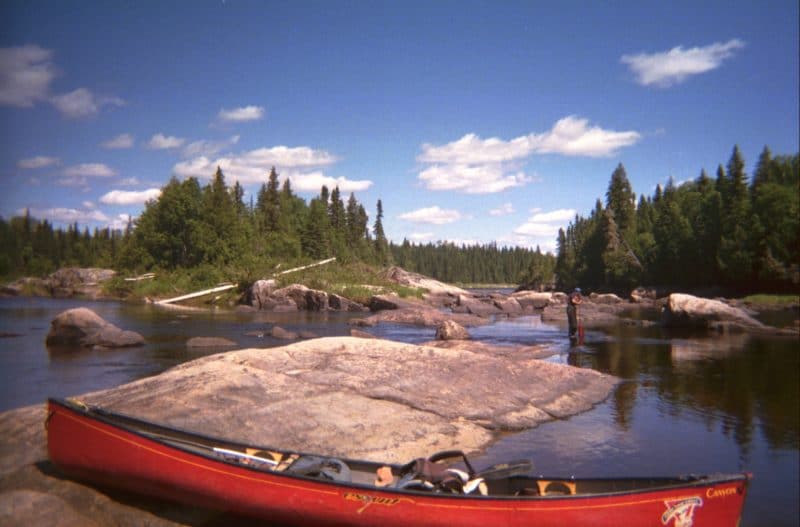
19. What The River Taught Me
My travel story takes place in the summer of 2017 — the final summer before I graduated university — as it continues to play a significant role in the person I’ve become.
When I say that, people ask me if it was the portion of the summer I spent solo backpacking in Europe . And to their surprise, it wasn’t. It was actually the latter portion of the summer where I stayed closer to home.
For July and August I worked as a canoe guide leading whitewater canoe trips on remote rivers in Canada. It was here that I got to canoe the powerful and iconic Missinaibi River, a river that continues to influence me all these years later.
The Missinaibi River flows from the powerful Lake Superior to the even more powerful salty waters of James Bay. Here, I led a group of eight teenagers through dozens of whitewater rapids over 500 kilometers (~311 miles).
With no cell service for 25 days, we were forced to disconnect from anything other than the river.
During this trip I learned two important lessons:
First, I learned to be confident in my own abilities as a leader and problem solver.
There were a few rapids where my campers’ boats flipped and I had to rescue the campers and the canoes. One rescue saw two boats flip on a mile-long rapid. It took six hours to make it down the rapid, and during this time I managed stuck canoes and crying campers.
And while this was one of the most difficult rescues I’ve done, I was amazed at how calm I was throughout it. I gave clear directions, prioritized effectively, and kept my campers safe throughout the entire experience. Following the rescue, I had a newfound sense of confidence in my abilities.
The second lesson I learned on the Missinaibi was the power of disconnecting from society and connecting with the people around you.
A wild river commands all of your attention. Each day, you and your group must take down camp, load canoes, paddle up to eight hours while navigating both rapids and portages, get to a new campsite, set up camp, cook dinner, and go to bed.
And without the distraction of technology, your attention has nowhere else to be. You focus on the river and your teammates.
As someone who had wrestled with anxiety and depression prior to this summer, I felt at total ease on the trip. Now I seek societal disconnection and human connection as much as I can.
Sometimes the most profound, life-altering trips are the least expected trips closer to home.
-Mikaela of Voyageur Tripper
More Short Travel Experience Stories
Looking for another story about travelling? Check out these short and unique travel stories!
25 Crazy Travel Stories You Need To Read To Believe
23 Inspiring Travel Stories Sharing The Kindness Of Strangers
17 True Short Adventure Travel Stories To Inspire Your Next Trip
38 Inspiring Travel Love Stories From The Road
16 Short Funny Travel Stories That Will Make You Laugh
20 Embarrassing Travel Stories That Will Make You Laugh & Blush
21 Travel Horror Stories About Scary Travel Experiences
Do you have any inspiring travel experience stories about life-changing trips to share?
Enjoyed these inspiring stories about travel? Pin this blog about travel experience stories for later!
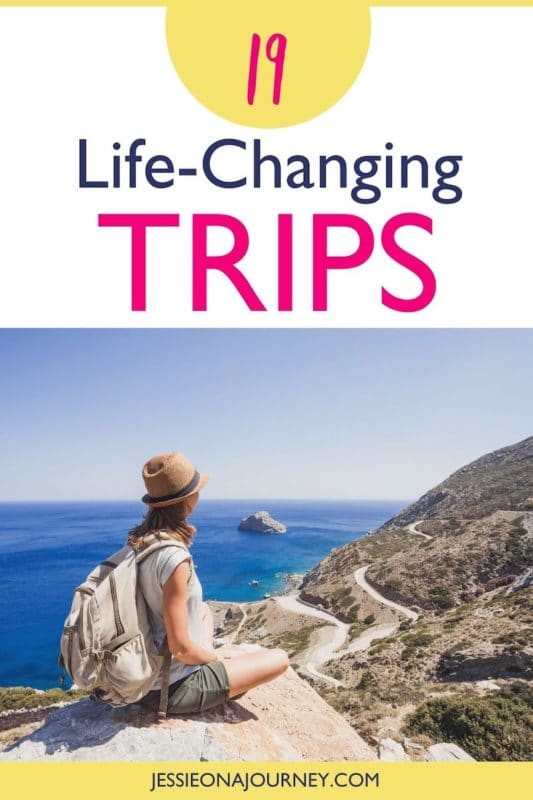
Related posts:
About jessie festa.
Jessie Festa is an New York-based travel content creator who is passionate about empowering her audience to experience new places and live a life of adventure. She is the founder of the solo female travel blog, Jessie on a Journey, and is editor-in-chief of Epicure & Culture , an online conscious tourism magazine. Along with writing, Jessie is a professional photographer and is the owner of NYC Photo Journeys , which offers New York photo tours, photo shoots, and wedding photography. Her work has appeared in publications like USA Today, CNN, Business Insider, Thrillist, and WestJet Magazine.

Hi, I’m Jessie on a journey!
I'm a conscious solo traveler on a mission to take you beyond the guidebook to inspire you to live your best life through travel. Come join me!
Want to live your best life through travel?
Subscribe for FREE access to my library of fun blogging worksheets and learn how to get paid to travel more!

Turn Your Travel Blog Into A Profitable Business
Subscribe to my email list to snag instant access to my library of workbooks, checklists, tutorials and other resources to help you earn more money -- and have more fun -- blogging. Oh, and it's totally FREE! :) // Privacy Policy .
Check your inbox for your welcome email + resource library password!
These stories are so much fun to read! Thanks so much for putting a post like this together. It’s great to be able to check out other people’s blogs and read about other people’s experiences!
Always great to read about travel experiences of others. Some great stories to read over coffee. I’ve Pinned your post for future reference and to share with others. Will check out each story author’s blog as well. Great Job! 🙂
Amazing story for new traveler like me thanks for your contribution
Leave a Comment Cancel Reply

The Sixteen Travel Personality Types
This post may contain affiliate links. Read our disclosure page for full details.
There are 16 travel personalities. What’s yours?
We humans love to categorize. It can be fun to fit yourself (or those around you) into a neat little box and decide who and what you are.
In truth, we all know that humans are far more dimensional and varied. No one fits precisely into an expected mold. Even so, there may be great deal of truth to the idea that there exists a set of distinct personality types.
Perhaps you’ve heard of the 16 common personality types? A simple Internet search will yield you all you really need to know, and if you’re especially interested, you can take a fun and simple personality test to find out your four letter type .
Each of these sixteen personality types is said to behave in predictable ways true to their temperament. As travel bloggers, we decided to look at this from our unique perspective.
Here’s what we think each type is likely to do when traveling, and a traveler friend for each type. You might want to follow some of their blogs if you identify with their type!
Which one are you?
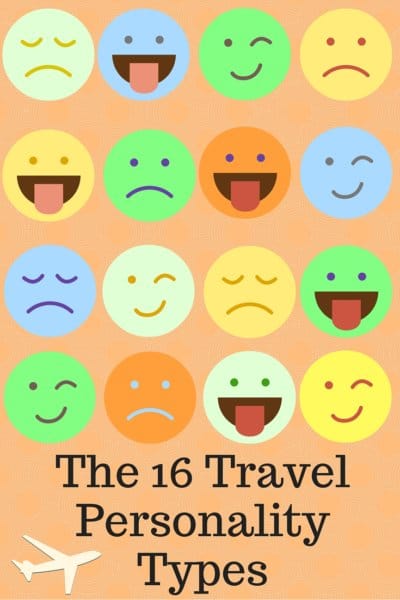
Free-spirited, emotional, and yearning for connections, the ENFP is driven by inspiration and feelings. Travel, for this type, is about making beautiful memories, interacting with locals, and recording each experience in a heartfelt journal entry. PS: This is my type. 🙂
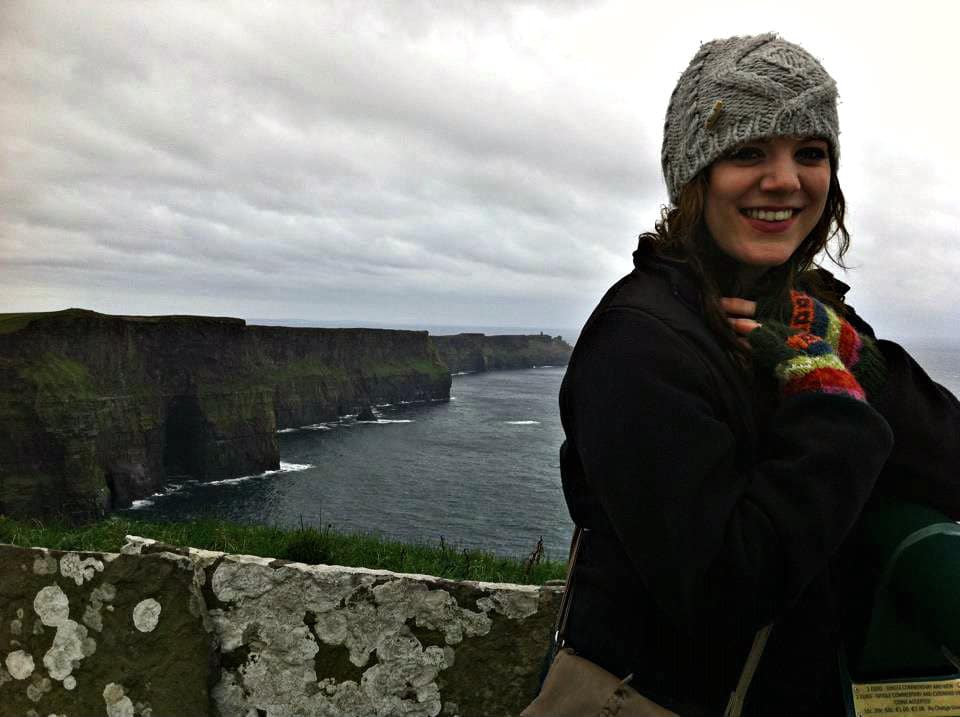
INFP’s are quiet and reflective, but a lot is going on inside. These creative and reserved folks are deeply guided by their values and express themselves most often through writing. It’s said that Tolkien was an INFP, and guess who else is one? Nathan.
When the INFP travels, they are likely to enjoy wandering around new cities (perhaps solo), observing their surroundings and diving into local history. They need time spent on their own to refresh and feel at their best, and they will have a great few hours of pondering and wondering as they explore an unfamiliar area.
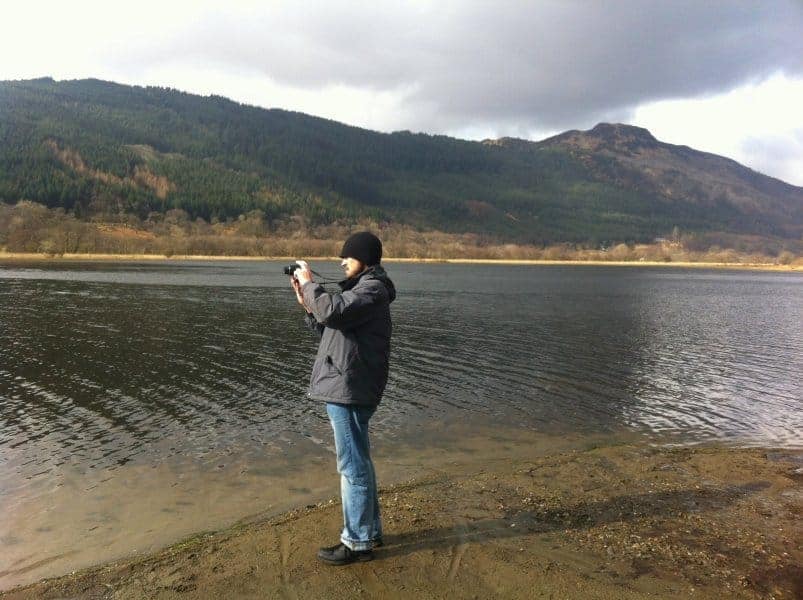
The ENFJ type is a person who is outgoing and has a big heart for the world. These individuals love dealing with people, and as natural leaders and teachers, they are super-motivating and encouraging of others.
Exuberant ENFJs are well-suited to lead group tours, or when traveling with others, will plan a well-organized and busy itinerary.
Our ENFJ traveling friend: Jess of Thrifty Traveler Tips
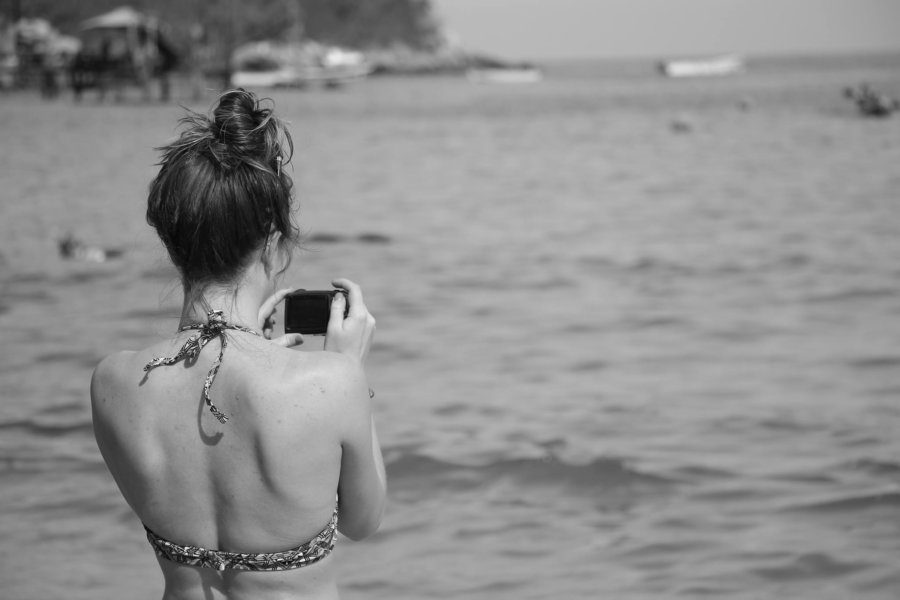
With deep hearts, INFJs are warm and nurturing souls who love to help others. They make connections easily, which can make them appear to be extraverted in nature, but they require time alone to decompress and recharge. Their combination of traits allows them to understand emotions and needs and then find ways to efficiently meet them.
The travel personality of the INFJ is to seek meaning and purpose in their explorations. They are likely to be found volunteering abroad, immersing themselves in local culture, or otherwise making a positive impact on the world.
Our INFJ travel friend Eva of Eva Explores
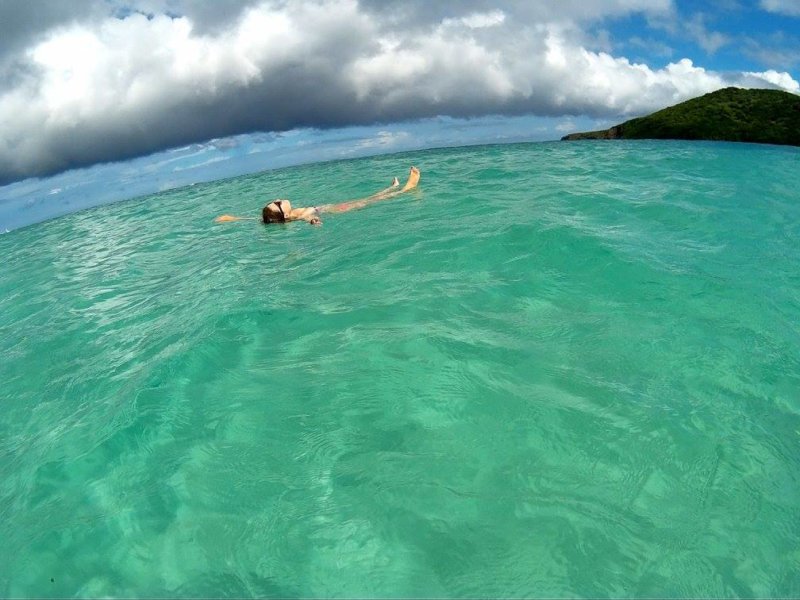
An active mind & buzzing intellectual curiosity: these are the hallmarks of the INTP. INTPs have a tendency to internalize everything, so that you may not be able to guess what they are thinking or feeling.
Yet this privacy does not mean nothing is happening inside–on the contrary they are constant philosophizer, observers, and even scientists of the world around them.
Our INTP travel friend Derek of Wandering Earl
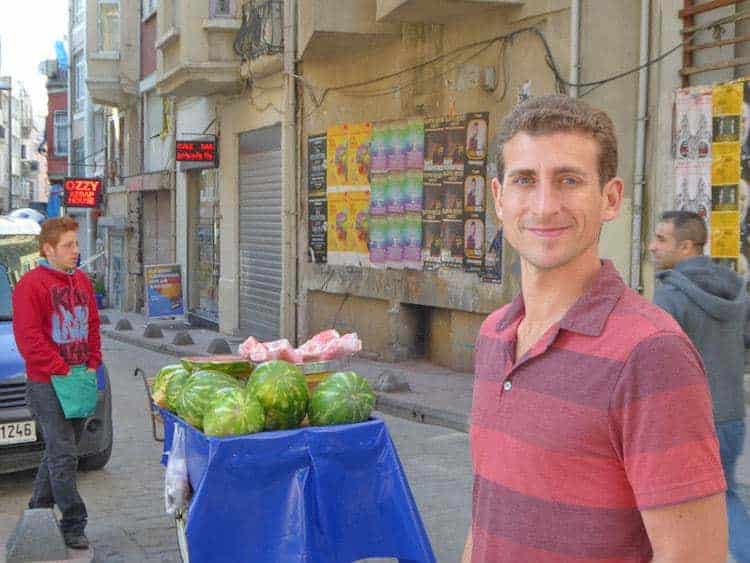
Comprising only a small percentage of the population, ENTPs are quick-witted and independent people who love a good debate. Bandying ideas back and forth is one of the ENTP’s favorite past times.
When traveling, this enthusiastic type is likely to be found matching strangers and locals wit for wit. This ties into the ENTP’s extraverted nature and makes it easy for them to meet and interact with others.
Their intelligence and confidence work in their favor when it comes to adventures, as this makes them bold and curious. With the ENTP travel personality, it is all about broadening the horizons.
Our ENTP travel friend Scott of At the Drop
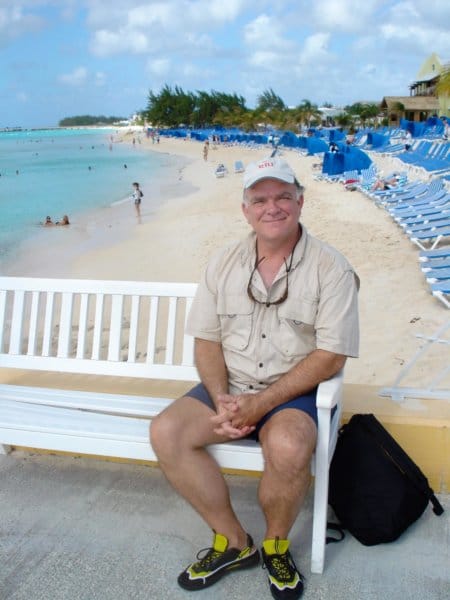
ENTJs are super driven people, and they tend to let nothing stand in their way. These natural leaders will overcome any obstacles that block their path. If the ENTJ wants to travel, you better believe he or she will make it happen.
With a decisive nature, ENTJs make choices quickly and share them with others. They have no problem taking charge, and if traveling in a group, may end up calling the shots.
They love a good time and a conversation and meet people quite easily; an ENTJ might be the popular center of attention in the hostel, simultaneously debating politics and planning a night out on the town.
Our ENTJ travel friend Elena

The INTJ loves to create ideas and possibilities and then capitalize them. Not content with daydreaming, INTJs know how to turn their goals into reality, and they proceed with ambition and strategy.
The INTJ is highly intelligent and insightful. This type works hard to understand everything they encounter, with keen observation and an interest in understanding inner workings and patterns.
The INTJ travel personality is likely to be found exploring foreign cultures with depth and passion, moving past “touristy” distractions and seeking authentic immersion.
Our INTJ travel friend Teri of Blue Sky Traveler

Both great listeners and chatty conversationalists, it is no surprise that the ESFJ is the personality type of “popular” individuals. ESFJs have no problem making friends, and they are loyal to those they are close to, helping them with problems and offering support.
Responsible and traditional, the ESFJ can be depended upon. They love to socialize and enjoy the finer things in life, as sensory, external stimuli appeals to them.
On their travels, ESFJs can be happy in a wide variety of activities but may be most content enjoying drinks with friends after a full day of shopping and sightseeing.
Our ESFJ travel friend Els of My Feet are Meant to Roam

ISFJs are honest and protective people that care most deeply about their friends and family. They work hard to meet others’ needs and support them, but their generous yet private nature sometimes keeps them out of the spotlight. Still, the ISFJ loves to be of service and makes up a large population of “helping” professions.
In their travels, ISFJs may be the first to sign up to volunteer for a worthy cause. When not directly working with others, the ISFJ’s travels may take them to places of natural beauty or rich culture. With a vibrant inner life and a strong memory, the ISFJ enjoys taking in the sensory experiences surrounding them.
Our ISFJ travel friend Jessica of A Wanderlust for Life
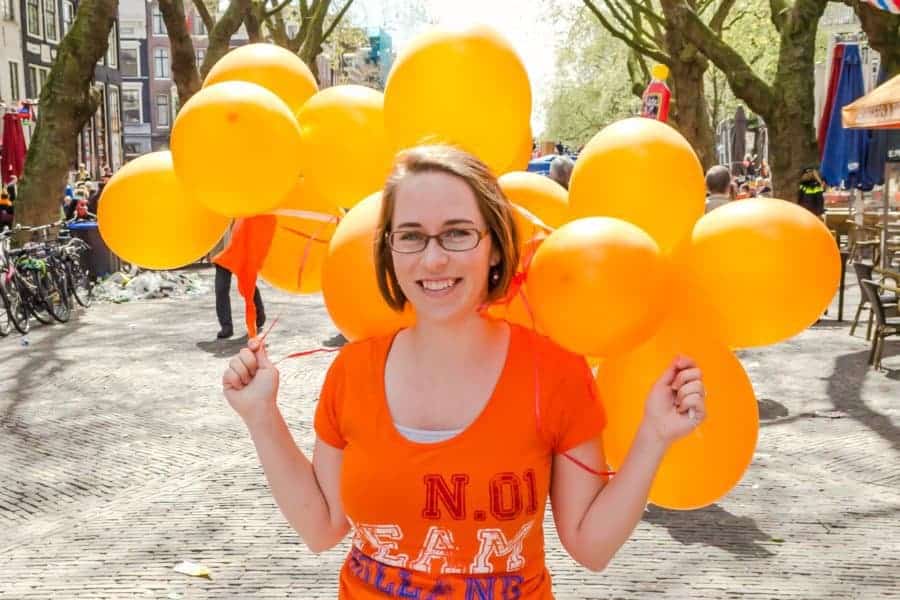
Spontaneous and fun-loving, the ESFP has a flair for the dramatic. To them, life is brimming with possibility and enjoyment, and they intend to live it to the fullest.
This desire, coupled with their innate social butterfly-ness, means the ESFP is practically born to travel. ESFPs appreciate luxury and like to make the most of their adventures.
Wanting to head out on a spur-of-the-moment food tour? The ESFP will be on board. Yet their zest for living in the moment and their passion for living large can make the ESFP a bit too impulsive. ESFP travelers may want to pack an extra stash of cash to account for the extra fun they will undoubtedly have!
Our ESFP travel friend is my best friend Haley’s mom Helen! 😀
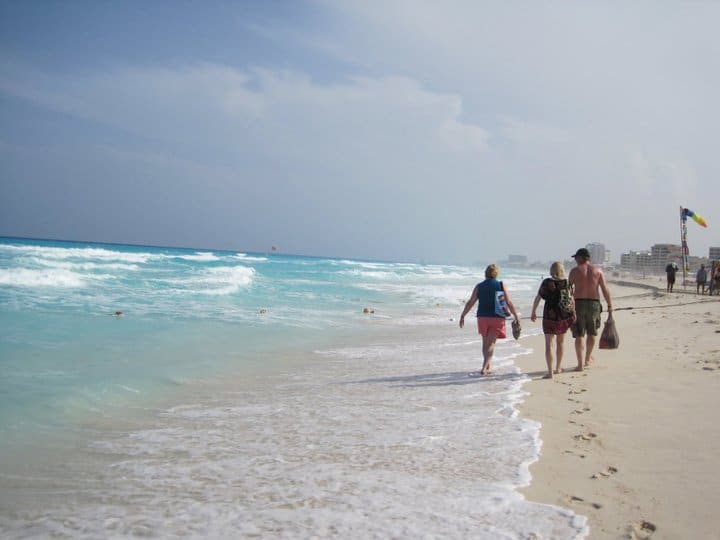
The ISFP loves to explore and experiment. While they travel the world they are keen observers, quietly absorbing their surroundings with their senses.
They experience the world as a vibrant and colorful place, and appreciate aesthetics and artistry. The ISFP journeys with spontaneity and flexibility, allowing others to be in charge and simply going with the flow.
Our ISFP travel friend Augusta

ESTJs thrive on being in charge and they do it extraordinarily well. Traveling alongside an ESTJ? These go-getters are super organized, and are likely to be the ones gathering people and getting everyone to join in on a massive pub crawl.
ESTJs are very social and love connecting with others, but they prefer to proceed in a structured manner. Want a well-planned itinerary that encompasses fun, challenges, and unique experiences? Go explore with an ESTJ.
Our ESTJ travel friend: Ben of Huge Party Travel
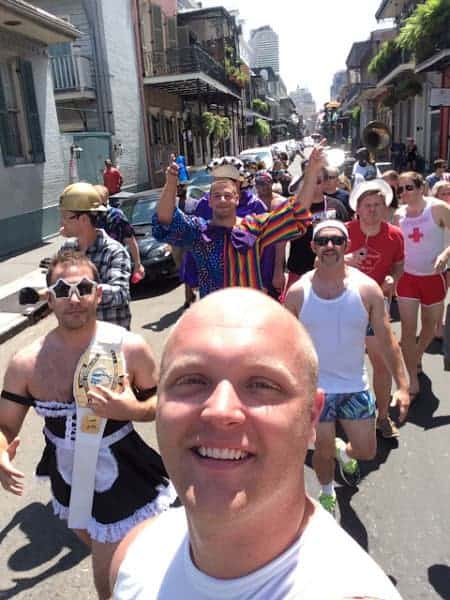
Logical, dutiful, and decisive, ISTJs enjoy knowing their place in the world and having a strong sense of order. They prefer familiar surroundings, but this doesn’t mean they don’t love to travel as much as the rest of us.
The ISTJ is most comfortable with a solid plan of action and with the ability to remain self-reliant. ISTJs are less impulsive than other types, and instead set out to journey methodically and strategically, likely saving money ahead of their travels and having a specific itinerary.
Because of this ISTJs ensure they enjoy their travels most.
Our ISTJ travel friend Tarah of Fit Two Travel
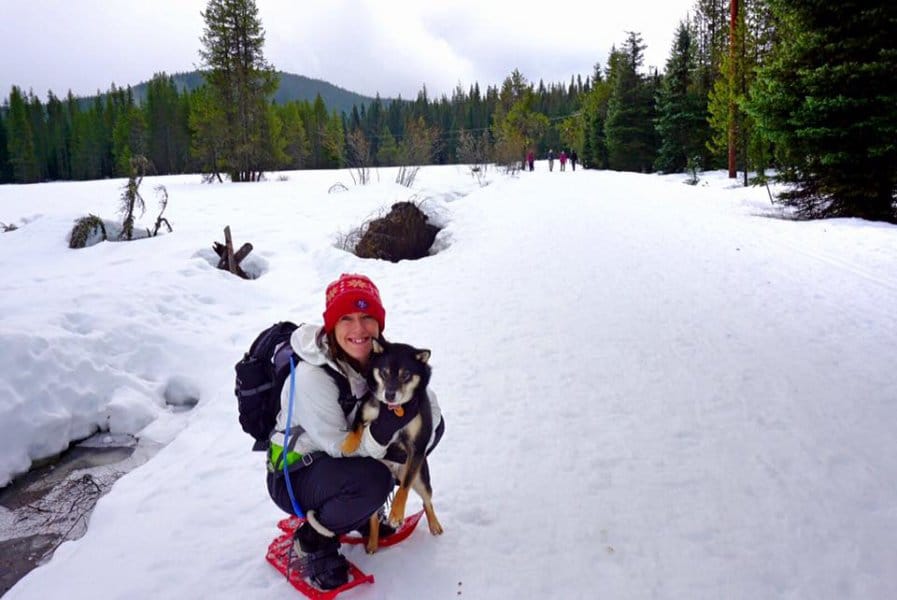
Energetic dyanamos, ESTPs adapt quickly and readily to their surroundings. They are active and curious, and may be the ideal personality type for adventure travel.
The ESTP loves to take action and never sits still for long. They live in the moment and make the most of their experience.
You might be an ESTP is your idea of a vacation involves bungee jumping, scuba diving, and wild scavenger hunts–anything that keeps your blood pumping and your excitement levels high.
Our ESTP travel friend Jeremy of TravelFreak
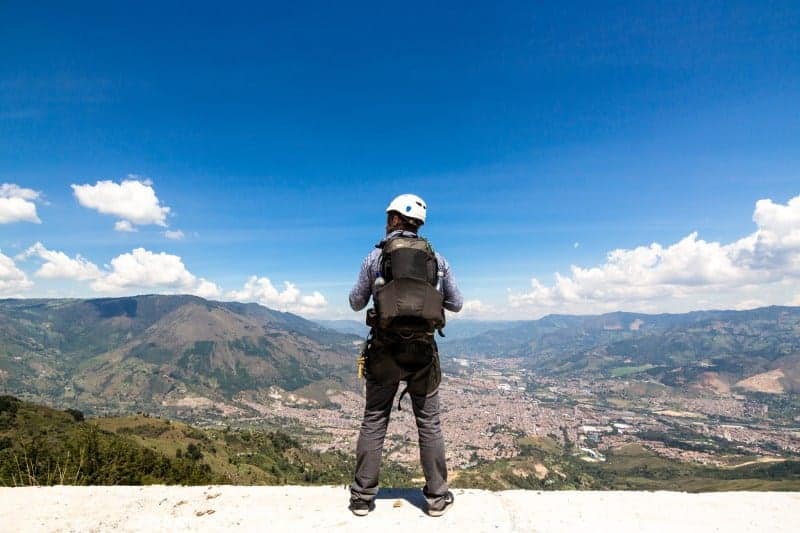
The ISTP loves to create, learn, and discover. Hands-on exploration is their forte, and they tend to be curious and spontaneous. These often unpredictable folks sometimes dive headfirst into things without intense consideration.
This can be a blessing and a curse to the ISTP traveler, but it certainly ensures their adventures will never be boring. On their journey, the ISTP is perhaps most likely to be found participating in a cultural activity, studiously observing the people and building a new skill.
Our ISTP travel friend is Aragorn….yes, the one from Lord of the Rings (couldn’t find any travel bloggers that fit this type! Surprising!)

The Travel Personality
Are most travelers of a certain type? I polled a number of travel friends and found the results to be quite interesting. It was tougher to locate S or Sensing individuals than Ns– those who use their intuition more strongly when reacting to their environment. Also more common in the travel personality were Extraverts. This may not be a surprise as adventurous types, and bloggers in particular, may be more outgoing and externally focused.
Yet, it seems that travelers have no one type. We come from a massive range of backgrounds, personalities, and characteristics. Our one commonality? A love for the world.
See you out there!

This travel personality article is purely for entertainment purposes and has no affiliation whatsoever with the official Myers Briggs Type Indicator ®.

Amy Hartle is the author of Do You Love Me? How To Stop Seeking Reassurance in Relationships , a book on reassurance seeking and relationship anxiety. Both her book and this blog are born of personal experience; Amy shares expert relationship advice from the lessons learned during her own 10+ years with her husband, as well as couples travel tips and romantic getaway recommendations, all gleaned while traveling the world together.

Why your honeymoon should not be the first trip with your partner
S olo travel, they say, is one of the best ways to discover oneself. And when you travel with someone, something similar happens â you get to know them better.
This is why several modern couples, especially those contemplating marriage, are taking trips with their prospective partners. It is helping them make better decisions and preventing them from marrying the wrong person.
Honeymoon as a first trip with your partner? It is passé.
For instance, when Tanisha (name changed), a 29-year-old professional working in Delhi, took a trip to Rishikesh with a person she met on a matrimony portal, she knew he would make a good spouse.
"After a few dates and speaking to him over two months, I knew I liked him. But just to be extra sure, I planned a weekend trip with him. For, I thought it would be a good way to know him better and see him sans any added mask of fakery. Those two days helped me realise that he indeed would be a good spouse â he was very considerate towards me throughout the trip and handled some tricky situations with utmost calm. Though there were some icks too, they were not deal-breakers for me. Another trip later, I knew he was the right one for me," she tells us.
They are now happily married and will soon celebrate their first wedding anniversary.
"I didn't tell my parents that I was going on a trip with him. They would have never allowed. But his parents knew, and I had also informed my close friends for safety purposes. But I am glad I took the decision, because it not only made me realise he is the right one but also strengthened our bond before we embarked on the wedding planning journey," she says.
How travelling helps you know a person better
Relationship experts agree that travelling with someone is a fantastic way to get to know them, especially if you are contemplating marriage. You are more likely to see their real personality than you would on a regular date or while conversing over calls.
The travel hiccups (like the cancellation of a hotel booking or the deflation of a car tyre) double up as opportunities to see them up close and know how they handle stress.
"The masks fall off when you are travelling. It offers more insight into a person," says Delhi-based relationship counsellor Ruchi Ruuh.
From shared interests and daily habits to conflict resolution, spending habits, patience, adjustment, and even intimacy â you get to know about it all when you travel with them, making the decision easier if you want to take the relationship to the next level or not.
Dr Preeti Singh, senior consultant clinical psychology and psychotherapy and chief medical officer at online mental health platform Lissun, adds that travelling is a great ice-breaker for people who are considering being together and it is better to know a person in different conditions and circumstances before you marry them.
Daman Philip, a relationship coach, agrees, "Travelling with a prospective partner is a valuable opportunity to learn more about each other in ways that daily life might not reveal. It tests and strengthens various aspects of the relationship, providing a solid foundation for a future together."
"Seeing how your partner handles stress, how they communicate, negotiate, and make decisions as a team in real-time can provide valuable insight into their character. Being together gives you an opportunity to learn about each other's likes and dislikes, comfort zones, values and beliefs, and how you both prioritise different aspects of a trip â agenda, spending, logistics, etc., opens up opportunities that reveal compatibility in daily habits and interests," Daman explains.
The planning process before the trip also offers a better understanding of a person.
"If that person wants a beach holiday and you hate beaches, the situation can give you a glimpse of their rigidity and how they make decisions," says Ruchi.
While preparing the itinerary or holidaying together, you can also see if he or she will participate in your interests. "If you are interested in arts, would they go to a museum with you? You can gain better insight into a person on a holiday," she adds.
Travelling also fosters meaningful conversations. "You are less stressed and are able to hold better conversations. Indulging in difficult conversations also becomes easier," says Dr Singh.
A mini live-in?
Relationship experts also say that travelling together is like a mini live-in.
Ruchi Ruuh, who believes living in is a great way of knowing people, says that travel can be a viable option for those who don't want to go live-in.
"Living in requires commitment, and there are several other hard aspects to deal with like finances, societal scrutiny and informing the parents. But with travel, you can just go and spend two to three days and then return. You're just together for the travel, and then you can break up and even leave if you don't get along well," says Ruchi.
This can specifically work for those looking for a partner to marry but don't want to spend years dating.
"It helps us clarify our decision on how a person is â if there are any major issues about certain things â it can become clearer in such spaces," adds Dr Singh.
Unlike a honeymoon, where you are already tied in the knot of matrimony, travel plans during the courtship period still give you a chance to call off things and prevent you from marrying the wrong person.
Instead of just testing and judging the person, focus on understanding potential future dynamics too.
"Pay attention to how both react to different situations and discuss your observations openly. Create a comfortable space to reflect on these experiences and this, in turn, can deepen your understanding of each other," says Daman Philip.
The move may appear as a challenge to society, but if it helps you with the life-changing decision that marriage is â isn't it perhaps worth it?
Just remember to keep a family member or close friend informed, even if you plan to take that trip sneakily.
Watch Live TV in English
Watch Live TV in Hindi

The depressing reality of quiet vacationing
Why is everyone suddenly going on trips without actually taking time off?
Who among us has not done a little fibbing at work? A little résumé embellishment here, a fake dental appointment there. Now people are taking full-blown holidays while on the job as part of a trend that's been called " quiet vacationing ."
There's no set definition of quiet vacationing, and it can encompass a variety of behaviors — traveling to a faraway place and not saying anything while still getting your work in, or not working but keeping your mouse moving to appear as if you're online in hopes that no one will notice your drop in productivity.
On the one hand, this sounds like an awesome, novel possibility brought about by the rise of remote work. Responding to the 10th email of the day while sipping a margarita on the beach sounds a lot nicer than doing it from an office desk as a coworker nearby munches loudly on their sad salad . If work gets slow in the summer, there's no good reason to sit and stare at your computer.
On the other hand, the idea that people are under so much pressure at work that they feel they can't take true disconnect-from-everything time off or even tell their boss they're working out of town for a bit is deeply depressing. It's a stark reminder of how broken American work culture is, just in time for summer.
Related stories
"It may be a question of just psychological safety, or lack thereof, that the employee doesn't feel like they can openly have a conversation with their manager about taking real time off," said Rebecca Zucker, an executive coach and the founding partner of Next Step Partners, a leadership consultancy. "We're all big boys and girls, and it's a question of not where we're working or when we're working, in terms of the hours we're working, but are we doing what we need to get done."
The whole quiet-vacationing discourse got kicked up by a recent Harris Poll survey on out-of-office culture. It found that 28% of workers said they'd taken time off work without telling their bosses — basically, they're out of the office, but not "officially." Millennials in particular have picked up on the practice, with 37% saying they'd dipped out of work on the sly.
People feeling like they have to be sneaky about their whereabouts is not a positive sign.
It's not that these workers are unhappy with the vacation their companies offer: 83% of respondents said they were satisfied with their company's paid-time-off policy. The issue seems to be that employees don't feel like they can actually use the time off they're given. Eight in 10 workers said they didn't use the maximum amount of PTO allowed; some said they felt pressure to always be available, while others cited a heavy workload as their reason. Almost half said they got nervous about requesting time away, and three-quarters said they wished their workplace culture put more value on taking breaks. Workers reported being tricky about the whole thing, too: About a third said they moved their mouse to make it look like they were online, and about the same share said they scheduled messages outside work hours to give the impression that they were working overtime.
The problem isn't really that people are working from elsewhere, especially if it's not hurting their productivity . The greater issue is what it signifies about their relationship with work and the incentives that have been fostered at their companies . People feeling like they have to be sneaky about their whereabouts is not a positive sign, nor is feeling like the only way to disconnect is to remain half plugged in.
The people taking vacations on the sly may be at organizations that are likelier to reward overworkers, said Malissa Clark, an associate professor and the head of the Healthy Work Lab at the University of Georgia. In turn, those quiet vacations may perversely reinforce the always-on culture, even when always being on isn't necessary or leading to better business results. Clark, who also wrote the book "Never Not Working: Why the Always-On Culture Is Bad for Business — and How to Fix It," pointed to 2015 research looking at how some men at a consulting firm were able to pull back from work while pretending to still put in 80-hour weeks. Their managers couldn't tell the difference, and they were rewarded for giving off the impression that they were workaholics, whereas men who were up front about needing to downshift were penalized.
"That's why there's this pressure for people to constantly be working and feel like if they take a step back they'll be left behind, because that's a very real thing," Clark said. "Apparently, that's what a lot of organizations reward."
Pretending to work when you're not or acting like you're putting in more hours than you do is not a new phenomenon . Zucker recalled working years ago at an investment bank where men would leave their suit jackets on the backs of their chairs after hours so people would think they were still somewhere in the office. But technology does make this behavior easier. The ability to connect from anywhere is a double-edged sword: Sure, it's nice to be able to answer an email on a midday walk or work from a relative's house over the holidays, but it sucks to know your boss knows that you saw that 10 p.m. Slack message pop up on your phone.
This is a societal problem and one that is uniquely American. We're told to go, go, go, made to feel like we can never get off the treadmill for even a second, lest we fall behind or give the impression that we're not trying hard. We often don't see taking time off as necessary and well deserved but as a sign of laziness and lack of work ethic. People aren't told to work to live; they're told to live to work.
Some of the fundamentals underlying quiet vacationing are positive. We live in an era where a lot of people can work from wherever and have more flexibility to achieve a better work-life balance. The rub is the sneakiness of it all. It would be much better if we were talking about, say, "loud working from anywhere for a month," or whatever you'd want to call it. (Or we could stop coining terms for work trends, the true dream.) It should be OK to have a conversation with your manager about spending a few days in the mountains or on the beach and, as long as the WiFi is decent, fulfilling your capitalist soldier duties.
Clark said this trend may make employers even more eager to force workers back to the office. Managers don't always love the idea that they don't know where their employees are, and they have the (often false) impression that being out of sight means not working.
Working from elsewhere does not erase the need for an actual vacation. There's all sorts of research indicating that time off improves mental and physical health, reduces stress, and boosts productivity, among other benefits. Even planning a vacation makes people happier. People need to psychologically detach from work in order to relax and recover.
By always feeling like you have to stay connected, you never recover from work.
"By always feeling like you have to stay connected, you never recover from work," Clark said. "And so it's like you're constantly running a marathon, but then you never take a break, and what is it going to do? It's going to wear your body down slowly, gradually, to the point where you hit a wall. And then all of a sudden you're burnt out."
If you're quiet vacationing and your boss doesn't know, good for you, I guess. But it would probably be better if you could be honest about where you are and what you're doing. And none of this scraps the need for an actual vacation. Regardless of how up front (or not) employees are, at the end of the day, American work culture is the bad guy here. The toxicity of hustle culture is the real problem, not the person who's low-key working from a cabin in the woods or the coworker who said screw it and is taking three weeks off.
Emily Stewart is a senior correspondent at Business Insider, writing about business and the economy.
About Discourse Stories
Through our Discourse journalism, Business Insider seeks to explore and illuminate the day’s most fascinating issues and ideas. Our writers provide thought-provoking perspectives, informed by analysis, reporting, and expertise. Read more Discourse stories here .

More from Careers
Most popular
- Main content
Suspect in killing of his mother and two other women in Florida shot and killed by officers
A suspect in a triple homicide case in Florida was shot and killed after a shootout with officers as he was traveling to Georgia, where police believe he intended to kill someone else.
Witnesses identified Javontee Brice, 28, in the shooting of two women Monday night, Bradenton police said. The Manatee County Sheriff's Office found a 48-year-old woman dead at a Motel 6 location after it got calls of shots fired at 9:15 p.m.
Witnesses say Brice arrived, shot his mother and fled.
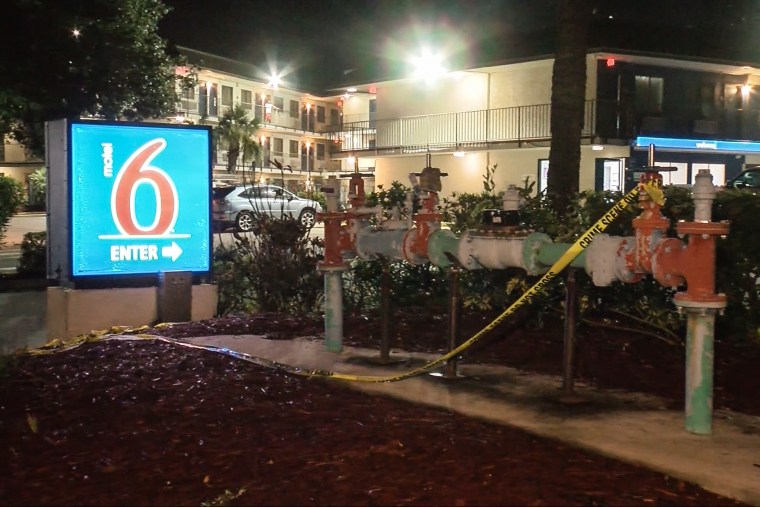
Less than a half-hour later, deputies responded to a different call of shots fired in Palmetto. A 29-year-old woman was shot sitting in a parked SUV and died despite lifesaving measures taken by law enforcement, police said.
Witnesses also identified Brice in that case, officials said.
And at 10 p.m., Brice was identified as the gunman who shot a woman in the face at a home in Bradenton, police said. She died at a hospital.
Authorities issued a statewide BOLO, or be on the lookout, alert for Brice's vehicle. He was spotted in Hamilton County, which is near the Florida-Georgia line.
At roughly 1:30 a.m. Tuesday, Brice opened fire on Hamilton County deputies, Bradenton police said. Authorities shot and killed him.
Homicide detectives said Brice was on his way to Georgia "with the intent to kill another individual."
Police did not name any of the women who were killed in a news release Tuesday. Other than his mother, their relationships with Brice are not clear.
Doha Madani is a senior breaking news reporter for NBC News. Pronouns: she/her.
America's Best Towns to Visit

10 great US towns to check out now
These destinations, selected by CNN Travel editors, offer loads of personality and plenty to see and do without the elbow-to-elbow crowds of the big tourist cities.

Making the most of life on the lake: How this town got its cool reputation

This ‘scruffy little city’ tastes and sounds great

Why ‘Beer City USA’ is so much more than a drinking town

From ‘ghost town’ to ‘popping’: How this Southern destination got its groove back

This Grand Canyon pit stop is now a bona fide hot spot

The laid-back California dream lives on here

This coastal culinary hub has a ‘big-city feel in a small-city package’

‘Grit City’ shines thanks to stunning scenery and glass art

This Rhode Island gem moved rivers to emerge as New England’s creative capital

Our top town offers first-rate arts, food and festivals and a hard look at its complicated history

how we chose
We tapped our network of CNN Travel contributors for nominations for our inaugural list, winnowing the finalists to 10 by looking at each town's attractions, food and beverage offerings, nightlife and cultural scene, sense of identity, proximity to other interesting spots and wow factor. We also looked at lodging options and the ease of getting there and around.
PHOTO CREDITS
- Intro : Chris Johnson/Visit Richmond
- Duluth : Visit Duluth
- Knoxville : SeanPavonePhoto/iStockphoto/Getty Images
- Grand Rapids : Ideology/Experience Grand Rapids
- Macon : Visit Macon
- Flagstaff : CNN
- San Luis Obispo : Brittany App/Visit SLO
- Portland : Visit Portland
- Tacoma : CNN/Travel Tacoma/Museum of Glass
- Providence : N. Millard/GoProvidence.com
- Richmond : Richmond Region Tourism
Chicago woman missing in Bahamas after going for yoga certification retreat, police say
Taylor casey, 41, is missing in the bahamas after going to paradise island for a yoga certification retreat and not being heard from in nearly week..
A Chicago woman has gone missing in the Bahamas after not being seen since last week, police said.
Taylor Casey, 41, is being searched for by the Royal Bahamas Police Force , according to a Facebook post the department shared on Friday.
Casey was last seen on June 19 in the area of Paradise Island in Nassau, Bahamas, police said. It is unclear what clothing she may have on, or if she is in danger.
USA TODAY contacted the Royal Bahamas Police Force on Monday but has not received a response.
Why was Taylor Casey in the Bahamas?
Casey has been in the Bahamas for a yoga certification retreat, according to a Facebook group created for her called " Finding Taylor Casey ."
"I’m currently in shock & can't believe I’m making this post. Taylor is such a sweet person who cares so deeply about the community," Anna DeShawn, a member of the Facebook group, said in a post on Monday.
The yoga retreat center in Paradise Island noticed Casey was not in class on June 19 so they notified her family the following day, according to DeShawn.
Casey's family is preparing to travel to the Bahamas, the Facebook group wrote in a post on Monday afternoon.
"We send our love, prayer, and energy to Taylor’s family as they begin their travels to the Bahamas," according to the social media post. "Together, we share our strength and our resolve to find our beloved Taylor."
USA TODAY reached out to Casey's family and friends but has not received a response.

IMAGES
VIDEO
COMMENTS
Being obsessed with travel means you are afraid to try anything — so you run. You run away from a stable income, from a prosperous future, from the difference you could actually make in the world. You run to faraway countries where you can take menial jobs — that you would be embarrassed to take back home — to net just enough money to ...
Traveling itself isn't a personality trait, but being curious about other places, cultures, the will of discovering new people new ways of life. Being open to the idea that the place you live in is only a tiny fraction of human experience and wanting to get more out of it that's a personality trait. I'll end this by a great poem because I'm a ...
Travel because you want to do things like taste new foods, learn a different history, hike new mountains, or speak a new language. Not because you want to "become a better person.". Not ...
Our study uncovered 7 distinct pay-offs: De-cluttered and better thinking. For example, one participant related, "When I travel, I can make my world as slow as possible for me to think" and ...
Travel entails wishful thinking. It demands a leap of faith, and of imagination, to board a plane for some faraway land, hoping, wishing, for a taste of the ineffable. Travel is one of the few ...
It can affect your personality. Travelling, particularly if you are in a foreign country, can sometimes put you out of your comfort zone, and so you often have to adapt to those differences ...
The quickest way to get out of your comfort zone is to get the hell out of wherever you are and immerse yourself in a completely different culture. Watching the way people interact with one ...
There's a growing body of scientific evidence that shows travel is very good for your mental health. In the past decade or so, researchers have learned a lot about why travel makes us happy ...
Traveling can influence these traits- "interacting with new people and immersing yourself in a new culture directly affect your openness personality trait, and, depending on your overall ...
Traveling in a group helps create a sense of belonging with consistent interaction. However, we lose our sense of freedom. It is shown that a lot of happiness and life satisfaction is based on our expectation of experiences. If you are traveling in a group, book a defined and controlled experience like a safari.
Check out Travel and Leisure's list of the 50 most romantic places for a general idea of what's out there in the way of romantic destinations. The notion of taking off to far-flung places is a romantic idea in itself, so grab your partner, your passports, and get out and see the world. Recommended spots for romantic travelers: Santorini ...
In a 2018 Harris Poll of 1,300 business travelers, 87 percent said that business trips helped them to be more empathetic to others, reports Quartz. And in a 2010 study, Columbia Business School ...
How A Traveling Mindset Makes You Happier. Personally, a traveler's mindset has brought me happiness and changed my life - on that first trip abroad as a solo woman traveler, I met my husband by pure chance shortly after arriving on the Costa Blanca in Spain, and have lived here ever since.Note, the intention was to travel the world independently and a Spanish boyfriend was definitely not ...
Loving to travel is a part of your personality. I don't like to travel. The only thing I like about traveling is the actual traveling part where I get to listen music and stare out the window. Otherwise, I'd rather not. Packing, unpacking, planning, sleeping in a strange bed, using strange mirrors and toilets, dealing with all kinds of crap ...
Travel is an activity, not a personality trait, what you choose to do when travelling is a good litmus test of your personality. If what you like to do is take pictures of yourself at popular places, than that's a a no from me. Reply reply More replies. elislider ...
3) They Have Higher Self-Esteem and Self-Awareness. People who love traveling constantly find themselves in situations that push them out of their comfort zones - they talk to random locals, mingle with people at hostels, and create travel plans as they go. As they overcome many challenges that come with traveling, they become more confident ...
Look for cities that thrive on spontaneity and self-reliance. The best destinations for your personality type are ones where you can wake up at 3am or 3pm and still have tons of fun. Here are some destinations you might like: Istanbul, Turkey. Bangkok, Thailand. New York City, United States.
8. How Cuba Changed My Life. One of my favorite inspiring stories about travel takes place in Cuba. I visited Cuba in February 2013 and it changed my life — and I like to think it did so for the better. Interestingly, I expected a completely different country and was compelled to write about it when I got back home.
Free-spirited, emotional, and yearning for connections, the ENFP is driven by inspiration and feelings. Travel, for this type, is about making beautiful memories, interacting with locals, and recording each experience in a heartfelt journal entry. PS: This is my type. 🙂. The ENFP is never bored, and looks at the world as a place of unending ...
How travelling helps you know a person better. Relationship experts agree that travelling with someone is a fantastic way to get to know them, especially if you are contemplating marriage. You are ...
The whole quiet-vacationing discourse got kicked up by a recent Harris Poll survey on out-of-office culture. It found that 28% of workers said they'd taken time off work without telling their ...
Melanie Trump did not travel with the 45th president to CNN Presidential Debate. Donald Trump is joined by some potential VP candidates.
A person who is 21 years of age or older may apply for a License to Carry Firearms. The license allows individuals to carry a firearm concealed on their body or in a vehicle. The license is valid for five years unless revoked. Submit applications to the sheriff of the county where you live. If you live in a city of the first class (Philadelphia ...
Witnesses say Brice arrived, shot his mother and fled. The scene of the shooting at a Motel 6 in Bradenton, Fla., on Monday. WFLA. Less than a half-hour later, deputies responded to a different ...
These destinations, selected by CNN Travel editors, offer loads of personality and plenty to see and do without the elbow-to-elbow crowds of the big tourist cities. CNN values your feedback 1.
I love travelling (currently working abroad right now) and for me it is a requirement. Not because I have no personality... just the regular home, 9-5, marriage lifestyle doesn't suit me. Pretty much all of my friends don't travel and from my dating days I actually had the opposite problem from you. No one wanted to travel.
An international roaming outage is leaving customers of the three major US mobile carriers in the dark, making it difficult or impossible for American customers who are currently out of the ...
10 great US towns to check out now. These destinations, selected by CNN Travel editors, offer loads of personality and plenty to see and do without the elbow-to-elbow crowds of the big tourist cities.
A Chicago woman has gone missing in the Bahamas after not being seen since last week, police said. Taylor Casey, 41, is being searched for by the Royal Bahamas Police Force, according to a ...
Eight Players from 2020 Olympics Named to 2024 Olympic Roster; 10 Players from 2023 Women's World Cup Will Travel to France; Four Players Named to Their First World Championship Roster; USA Will ...